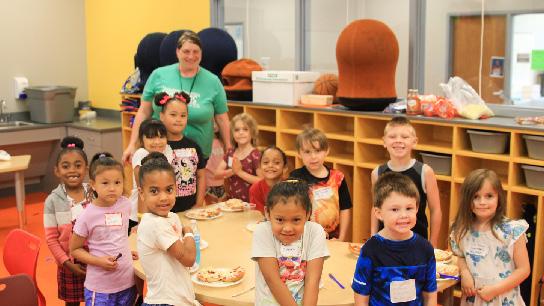

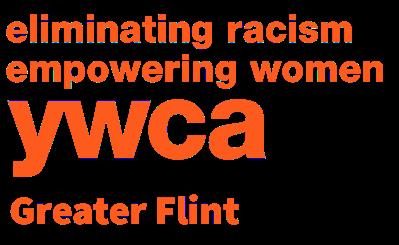
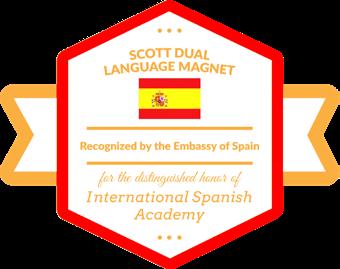





Dear New Teachers:
Welcome to the 2025–2026 school year! As we begin another exciting year together, thank you for being part of our Topeka Public Schools family.
Topeka Public Schools is the sixth-largest district in Kansas, and what truly sets us apart is the heart, dedication, and spirit of our students, staff, and families. Whether cheering on our scholars at KSHSAA State Tournaments, celebrating the academic excellence of our Governor’s Scholars, who represent the top 1% in the state academically, or applauding national recognition for our fine arts programs, this past year has reminded us that greatness lives in every one of our schools.
We are also proud to share that for three of the past four years, a TPS educator has been named the Region 2 Kansas Teacher of the Year, a reflection of the exceptional talent and passion within our classrooms.
As we begin the new school year, our mission to engage, prepare, and inspire students for a lifetime of learning remains at the center of all we do.
It is truly a privilege to serve your family, and I can’t wait to see what this year holds for each of our incredible students and staff members. Welcome back to the 2025-2026 school year!
Sincerely,
Dr. Tiffany Anderson Superintendent (785) 295-3059 tanderson@tps501.org

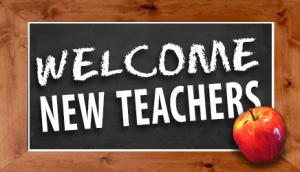
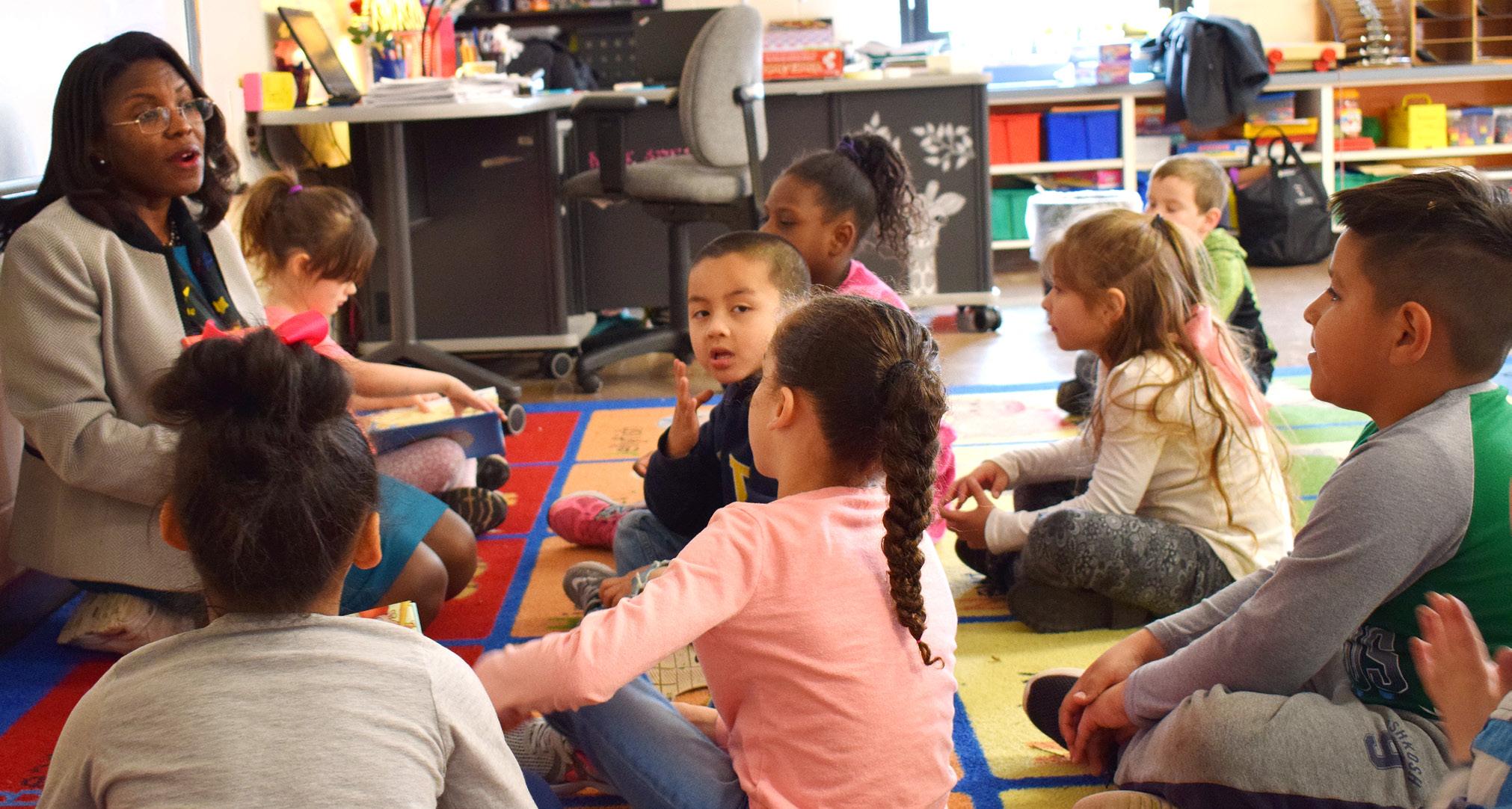
Topeka Public Schools is the 6th largest school district in Kansas, educating 13,000 students this past year. We offer PK-12 education along with specialized services for 3 and 4 year olds and online high school diploma completion for any adult who lives within the State of Kansas. The school district includes 14 elementary schools, six middle schools, and six high schools. In the 2024-2025 school year, 75% of 501 students received free or reduced lunch, compared with the state average of 48%, and a county average of 55%. The racial/ethnic composition of the district is 33% White, 37% Hispanic, 14% African-American, and 16% Other. The school district serves a total of 1,500 English Learners (ELs). The 2020 census indicated an estimated 14% of the Topeka population lived below the poverty line, compared to the state average of 11%. Further, school-aged children in Topeka experience risk factors at home: two out of five children live in single-parent households, nearly 40% more than the state average. We offer unique learning opportunities including five signature campuses, two magnet schools, an international studies program and the Topeka Center for Advanced Learning and Careers (TCALC). Additionally, Topeka has a College Preparatory Academy program for middle and high school students. There are 28 languages spoken in the district (including English). Topeka Public Schools is the most diverse school district in Kansas.

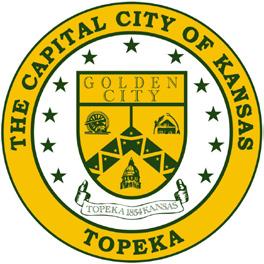
Website: visittopeka.com
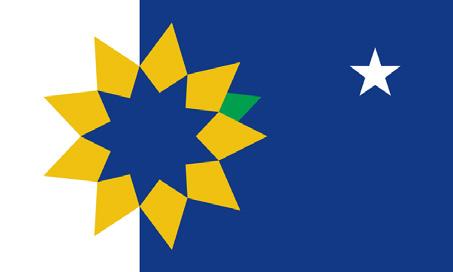
Topeka serves as the capital of Kansas, with amenities and opportunities making it the perfect place to raise a family and focus on your career. From Lake Shawnee to the NOTO arts district, you will find something for everyone. The up-and-coming downtown district and affordable housing, make Topeka an ideal place to settle down. Shawnee County is home to 177,480 people who live, work and play in and near the capital city. Topeka Public Schools is the largest school district in the county serving approximately 13,000 students each year.
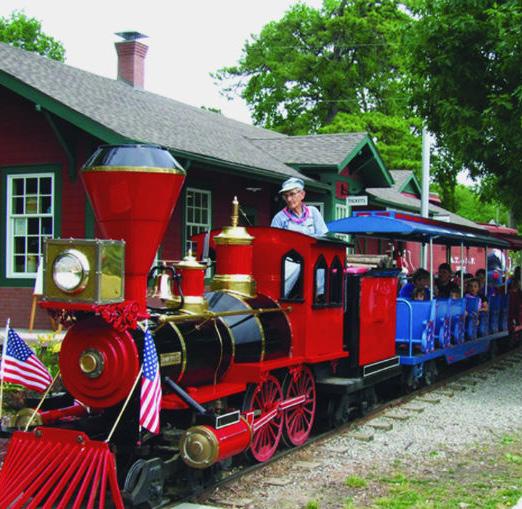
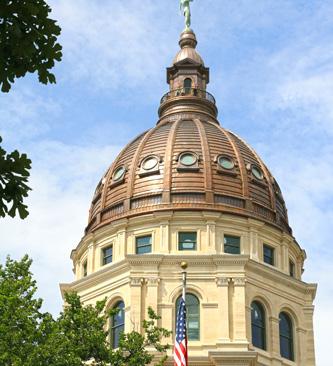
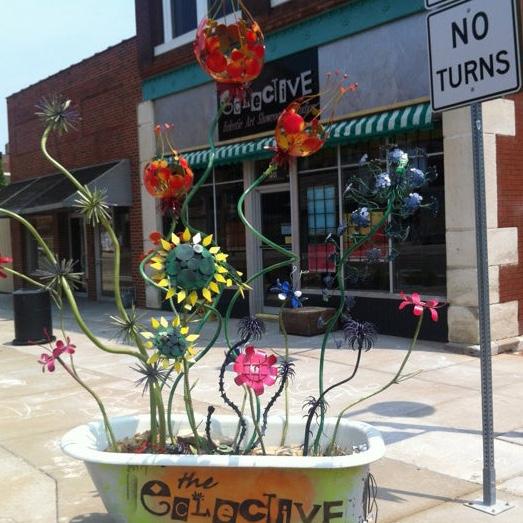
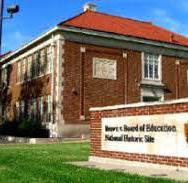
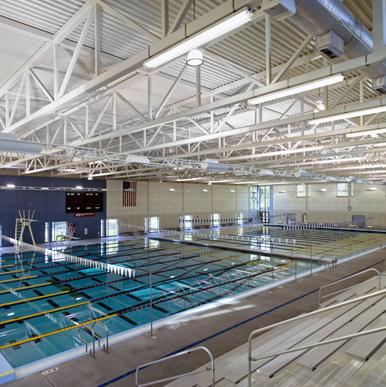

Brown v. Board of Education
Brown v. Board of Education of Topeka was a landmark 1954 Supreme Court case in which the justices ruled unanimously that racial segregation of children in public schools was unconstitutional. Brown v. Board of Education was one of the cornerstones of the civil rights movement, and helped establish the precedent that “separate-but-equal” education and other services were not, in fact, equal at all. Topeka Public Schools is proud of being part of this landmark decision that changed the face of public schools forever. Topeka Public Schools celebrates our diversity and honors our heritage.
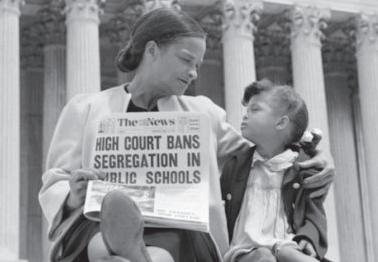
www.facebook.com/ TopekaPublicSchools/
www.twitter.com/TPS_501/
www.instagram/TPS_501/

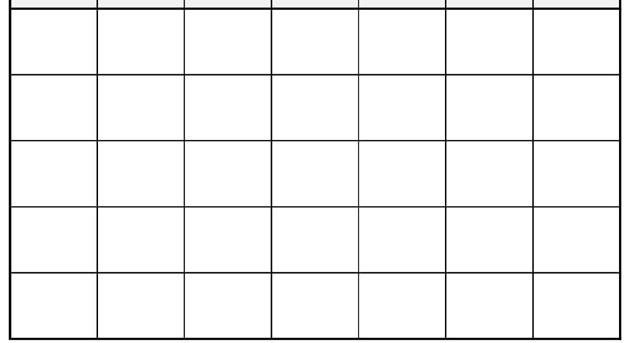











August 12, 2025
First Day of School (All Students K-12) August 13, 2025
Labor Day, No School
Personal Development Day
Teacher Planning & Prep
1, 2025
29, 2025
13, 2025
District PD Day, No School October 14, 2025
Parent-Teacher Conferences
Conference Friday, No School
Thanksgiving Break, No School
Winter Break
Teacher Planning & Prep
District PD Day, No School
MLK Jr Day, No School
Personal Development Day
Parent-Teacher Conferences
Conference Friday, No School
Spring Break, No School
Teacher Planning & Prep
Personal Development Day
District PD Day, No School
High School Graduation
Memorial Day, No School
Last Day of School (half day)*
October 22-23, 2025
October 24, 2025
November 24-28, 2025
December 22, 2025 - January 1, 2026
January 2, 2026
January 5, 2026
January 19, 2026
February 9, 2026
February 25-26, 2026
February 27, 2026
March 16-20, 2026
March 23, 2026
April 3, 2026
April 27, 2026
May 16, 2026
May 25, 2026
May 21 or 28, 2026
Teacher Planning & Prep* May 22 or 29, 2026 *Pending Unused Inclement Weather Days
Parent Teacher Conferences
Beginning of Quarter
End of Quarter
Teacher Planning & Prep (No School)
Professional Development ( No School)
No School / Personal Development
New Staff Orientation
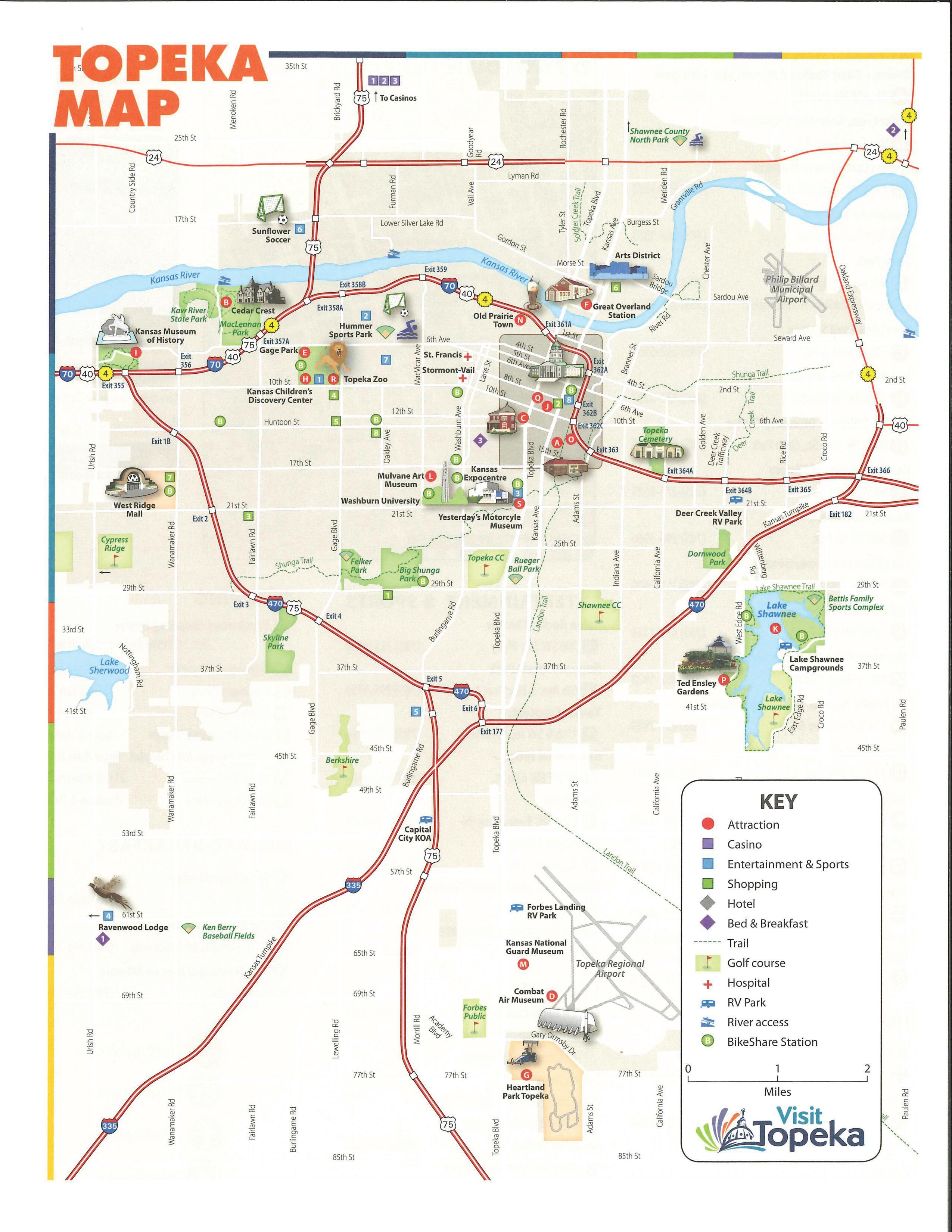
Elementary Schools
Highland Park Central 2717 SE Illinois 66605
Jardine Elementary 2600 SW 33rd Street 66611
Lowman Hill 1101 SW Garfield 66604
McCarter 5512 SW 16th 66604
McClure 2529 SW Chelsea Dr. 66614
McEachron 4433 SW 29th 66614
Meadows 201 SW Clay 66606
Quincy 1500 NE Quincy 66608
Randolph 1400 SW Randolph 66604
Ross 1400 SE 34th 66605
Scott Dual Language Magnet 401 SE Market 66607
State Street 500 NE Sumner 66616
Whitson 1725 SW Arnold 66604
Williams Magnet 1301 SE Monroe 66612
Middle Schools
Chase MS 2250 NE State 66616
Eisenhower MS 3305 SE Minnesota 66605
French MS 5257 SW 33rd 66614
Jardine MS 2600 SW 33rd 66611
Landon MS 731 SW Fairlawn 66606
Robinson MS 1125 SW 14th
High Schools
Capital City HS 2731 East Circle Dr South 66606
Highland Park HS 2424 SE California 66605
Hope Street Academy 1900 SW Hope 66604
Topeka Center for Advanced Learning and Careers (TCALC)
500 SW Tuffy Kellog 66606
Topeka HS 800 SW 10th 66612
Topeka West HS 2001 SW Fairlawn 66604
Avondale Academy Linn Education Center 200 SE 40th Str 66609
Shaner Academy 1600 SW 34th 66611
Sheldon Child Development Center 1155 SW Seabrook 66604
Other Facilities
Avondale East TPS Police 455 SE Golf Park 66605
Bishop Professional Development Center 3601 SW 31st St 66614
Burnett Administrative Center 624 SW 24th 66611
Quinton Heights Education Center - ELL
District Welcome Center 2331 Topeka 66611
Service Center 125 SE 27th 66605
Poverty (% of Persons Below Poverty)
Intensive Care (31 to 100%)
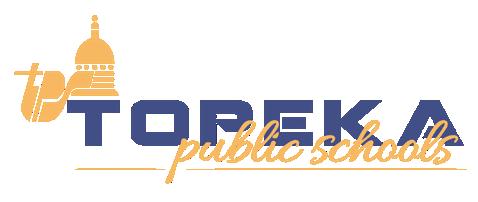
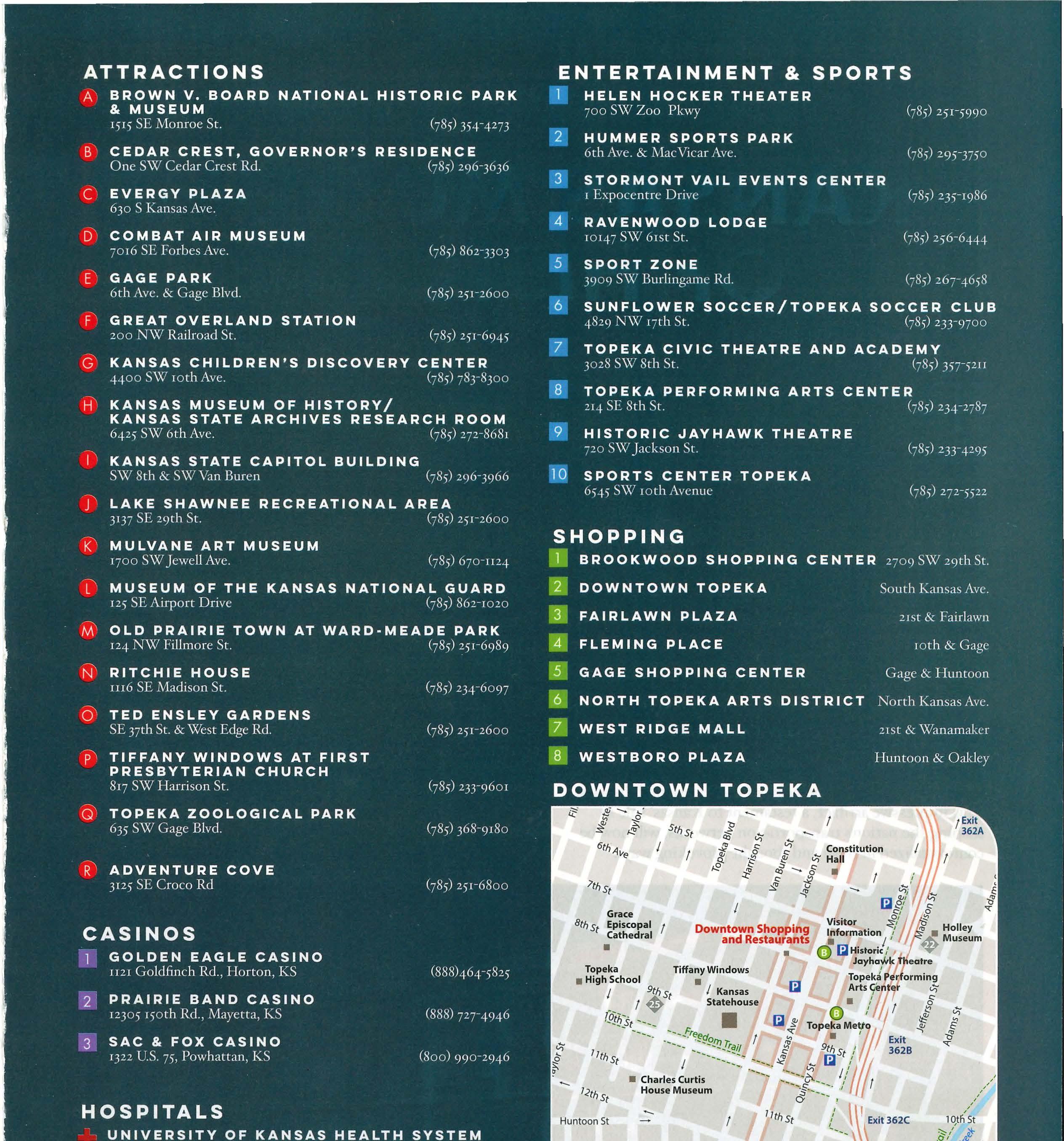


August 15, NOTO Friday Concert Series, Ernest James Zydeco, 6pm-9pm
August 24, Veil Events Bridal Show, The Beacan (420 SW 9th Str)
September 5-7, Huff and Puff Balloon Festival, Mount Hope Balloon Field
September 13, Brew at the Zoo
September 14, Kansas City Chiefs Home Opener (vs Philadelphia Eagles)
September 20, NOTO Friday Concert Series, 6pm-9pm
September 20-21, Cider Days, Kansas Expocenter
September 20, Kansas Book Festival, 9am to 4pm, Washburn University Library
October 11, Gem & Mineral Show, Kansas Expocenter
October 31, URA Rodeo Finals, Domer Livestock Arena, Kansas Expocenter
November 26-December 31, Winter Wonderland, Lake Shawnee
December 6, Miarcle on Kansas Avenue, Downtown Topeka
Topeka Zoo and Conservation Center, Dinosaurs Alive! will be recurring daily until August 31
Boo at the Zoo, October 18 & 25
Chalktoberfest, October 12
Zoo Lights, November 27 through December 31
Cookies with Claus, December 6
First Friday Artwalks - Recurring monthly on the first Friday of each month (NOTO, Downtown, Westboro and more)
Evergy Plaza
Crossroad Fountain Shows, Tuesdays, 8:30pm
Splash Pad, 11am to 1pm, 5pm to 9pm
Eats and Beats, Thursdays, 6pm to 9pm (food trucks and live music)
Friday Flicks, Fridays, vendors open at 7pm, movie begins at 8pm
Zumba at the Plaza, August 9 and 23, 10am
Combat Air Museum, Forbes Field (7016 SE Forbes Ave)
Kansas Hsitorical Museum, 6425 SW 6th Ave (will reopen in November)
August 5, Teachers back on duty
August 5-11, Preservice Week
August 6, District Convocation, Lee Arena, Washburn University
August 7, District Professional Development Day
August 12, First day of school for Kindergarteners, 6th Graders, 9th Graders
August 12, First day of school for Hope Street, Capital City, and Avondale Academy
August 13, First day of school, all other students (grades 1-5, 7-8, 10-12)
August 20, First day of school for Pre-K
September 1, Labor Day, no school
September 24, Family Fitness Fun Night, Hummer Sports Park, 6th & Tuffy Kellogg Drive
September 29, no school, Personal Development Day
October 13, no school, Teacher planning and prep
October 14, no school, Disitrict Professional Deveopment Day
October 22-23, Parent Teacher Conferences
October 24, no school
November 24-28, no school, Thanksgiving break
December 19, last day of school before winter break

Topeka Raintree Apartments
3500 SW 29th Street
785-273-1887
www.raintreetopeka.com
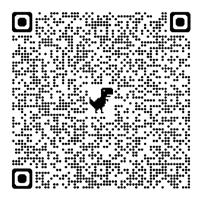
Preferred Employer Program: application fee waived, $100 off first months rent

Emory Lakes Luxury Apartments
4800 NW Fielding Place
785-338-7308

Preferred Employer Program: Waived application fees, waived administrative fees, move-in specials, flexible move in dates, short-term lease options

Wheatfield Village Apartments
2759 SW Fairlawn Road
785-596-6335
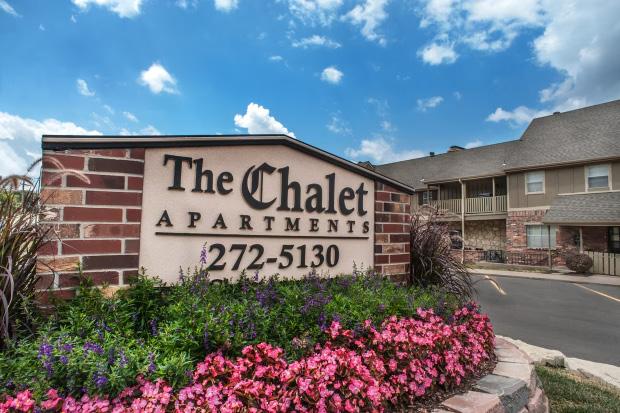
Chalet Apartments
4140 SW 6th Ave.
785-272-5130
Employee referral program: waived administration fees
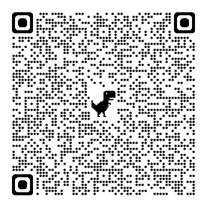
Property Management Group lists houses for rent. Some homes may offer discounts to teachers.
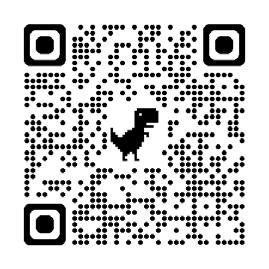
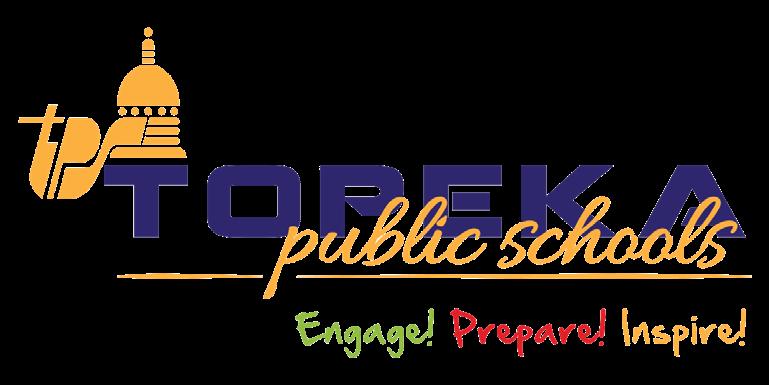
https://www.wheatfieldvillageapts.com
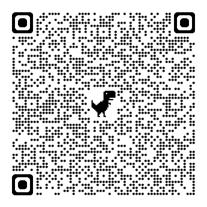
We offer a waived, $50 application & $250 administrative fee which is paid upfront then the credit will be applied on move-in day . In addition to the app & admin fee credit we are also providing a $250.00 rent credit.

The Topeka Public Schools English Learner (EL) Department provides services to 10% of the student population. While 34% of students are Hispanic, and Spanish is the most prominent language after English, 39 languages are spoken in TPS.
TPS has a nationally and internationally recognized PK-12 Dual Language Program. In 2022, TPS won the Grand Magna Award for closing the equity gap for bilingual and biliterate learners. The dual language schools in TPS are Scott Dual Language Magnet, Landon Middle School, and Topeka High School.
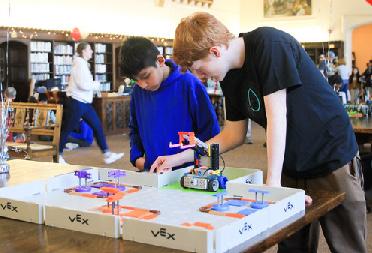
“I did then what I knew how to do. Now that I know better, I do better.”
--Maya Angelou
Monday, July 28
Elementary staff report to their home schools
7:30 a.m. - 8:15 a.m.
Continental Breakfast delivered to home school
8:15 a.m. - 11:15 a.m.
All Elementary General Education Teachers, Special Education Teachers, Counselors, Related Services (SLP, OT, PT, SW, Psych, Nurses) will report to their home school and meet with building administrators.
11:15 a.m. - 12:45 p.m.
Lunch and travel time - Box lunch provided by Topeka Public Schools in the Bishop Café. Participants may eat in the Café or Monroe A, B, C. Report to Bishop by 12:00 p.m.
Elementary staff report to Bishop Professional Development Center 3601 SW 31st Street
12:45 p.m. - 3:45 p.m.
Monroe A, B, C *(all staff)
• Welcome from Dr. Anderson & Mrs. Wallace
• Learning Principles, Mission, Vision, District Initiatives Presentation
3:45 p.m. - 5:00 p.m.
Elementary Store *(all elementary staff)
* all staff includes General Education, Special Education Teachers, Counselors and Related Services staff
Tuesday, July 29
All staff report to Bishop
7:30 a.m. - 7:55 a.m.
Monroe A, B, C, Café *(all staff)
Continental Breakfast sponsored by Emporia State University Online
Socializing, Review of Day’s Agenda
8:00 a.m. - 11:15 a.m.
Monroe A, B, C *(all staff)
Classroom Management, Effective Instruction and Student Motiviation - The Key to Raising Student Achievement, Part 1
Mr. Mark McLeod
11:15 a.m. - 12:30 p.m.
Monroe A, B, C, Café *(all staff)
Lunch & Learn
Lunch provided by NEA-T
12:30 p.m. - 2:00 p.m.
Monroe A, B, C *(all staff)
Continuation of morning session - Mr. Mark McLeod
2:15 p.m. - 3:45 p.m.
Debrief from Teaching and Learning Staff
* all staff includes General Education, Special Education Teachers, Counselors and Related Services staff
“An investment in knowledge pays the best interest.”
--Benjamin Franklin
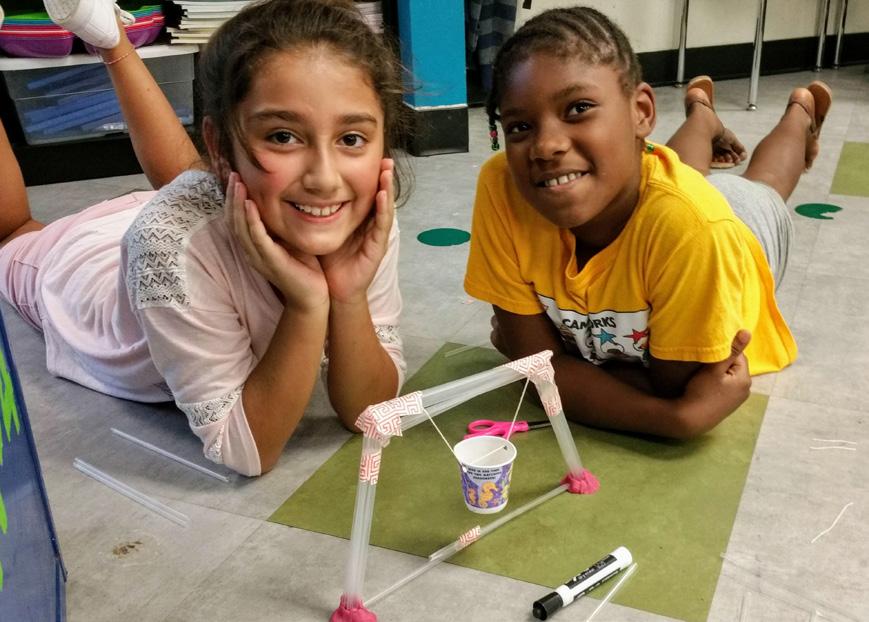
Topeka Public Schools is a traumainformed school district. All staff are provided the opportunity to understand trauma and its impact on our students. As staff, we understand how trauma impacts the brain, how to recognize signs of trauma and respond in a way that fosters learning.
Child Trauma Academy trained staff offer professional development to all TPS staff throughout the year. For more information, email our Social Work CoordinatorSusan Mills at smills@tps501.org.
“Education is not the filling of a pail, but the lighting of a fire.”
--William Butler Yeats

Topeka Public Schools, in partnership with Dr. John Hattie, is implementing high-impact Visible Learning strategies. TPS focuses on Teacher Clarity, Academic Discussion, and Higher-Level Questioning. These three student-centered strategies are written into School Improvement Plans and part of the learning walk process.
• Teacher Clarity - Students are able to articulate what they are learning, why they are learning it, and how they will know when they have learned it.
• Academic Discussion - Students are cognitively challenged in learning through the use of district supported initiatives (e.g., Kagan Cooperative Learning, Building Thinking Classrooms, student to student discourse strategies, etc.).
• Higher-Level Questioning - This includes both teacher and student questioning, looking at the Depth of Knowledge, and Dr. Hattie’s four key questioning strategies:
• designing higher cognitive questions
• developing a sequence of questions
• increasing wait time
• responding to answers - redirecting, probing, reinforcing
Wednesday,
7:30 a.m. - 7:55 a.m.
Monroe A, B, C, Café
Continental Breakfast compliments of Azura Credit Union Socializing, Review of Day’s Agenda
8:00 a.m. - 8:15 a.m.
Monroe A, B, C, Café Welcome, Community Builder
8:15 a.m. - 10:15 a.m.
Monroe A, B, C Learning Trifecta
10:00 a.m. - 10:15 a.m. Break
10:15 a.m. - 11:30 a.m.
STEM Teambuilder
8:15 a.m. - 11:30 p.m.
Related Services (SLP, OT, PT, SW, Psych, Nurses) will meet with their department
11:30 a.m. - 12:30 p.m.
Lunch - Monroe A, B, C, Café Burger Bus, compliments of Horace Mann
12:30 p.m. - 1:45 p.m.
General & Special Education Teachers, Counselors Comprehensive, Integrated, Three-Tiered Model of Prevention (Ci3T) by grade-level band
1:45 p.m - 3:45 p.m.
Related Services (SLP, OT, PT, SW, Psych, Nurses) will meet with their department
1:45 p.m. - 2:00 p.m. Break
2:00 p.m. - 3:45 p.m.
Meet the Teaching and Learning Team
3:45 p.m. - 6:00 p.m.
NEA-T New Staff Store KNEA Building, 715 SW 10th Ave (second floor)
Thursday, July 31
All staff report to Topeka Zoo & Conservation Center
Kay McFarland Japanese Garden 635 SW Gage Blvd
7:30 a.m. - 7:55 a.m.
Continental Breakfast, Socializing, Review of Day’s Agenda
8:00 a.m. - 9:30 a.m.
Community Partners presentations and booths
9:45 a.m. - 11:15 a.m.
Topeka City Bus Tour
11:15 a.m. - 12:30 p.m.
Box lunch and travel time to school.
All staff return to their home schools
12:30 p.m. - 3:45 p.m.
Long term subs will meet at Bishop, 3601 SW 31st Street
All General Education, Special Education Teachers, will report to their home school and meet with instructional coaches.
Related Services will meet with department coordinators
• SLP, SW, and Psych will meet at Quinton Heights
• OT, PT will meet at Avondale West
• Nurses will meet at Highland Park High School
3:45 p.m. - 6:00 p.m.
NEA-T New Staff Store
KNEA Building, 715 SW 10th Ave (second floor)
Topeka Public Schools’ programs and staff have been recognized for:
• 2025 Presidential Award for Ecellence in Mathematics and Science Teaching (PAEMST) finalists Cherryl Delacruz, College Prep Academy, Meshach McKnight, Chase Middle School
• 2023 Woman Superintendent in School Leadership Winner, Dr. Anderson
• 2024 Region 2 Kansas Teacher of the Year nominees Diane Kimsey and Laura Cluke
• 2025 Region 2 Kansas Teacher of the Year Nominees Troy St. Clair and Michael Kates
• 2023 & 2024 Horizon Award winners, Megan Maness (French) and Leslie McCaffrey (Williams Science & Fine Arts Magnet)
• 2024 Best Communities for Music Education
• 2024 High School History Teacher of the Year, Leslie Nelson (Topeka West HS)
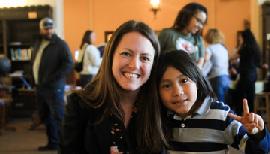
“My goal is simple. Help kids become smart, well-rounded people who love to learn!”
--Greg Tang
. . .
The Topeka Public Schools English Learner (EL) Department provides services to 10% of the student population. While 34% of students are Hispanic, and Spanish is the most prominent language after English, 39 languages are spoken in TPS.
TPS has a nationally and internationally recognized PK-12 Dual Language Program. In 2022, TPS won the Grand Magna Award for closing the equity gap for bilingual and biliterate learners. The dual language schools in TPS are Scott Dual Language Magnet, Landon Middle School, and Topeka High School.
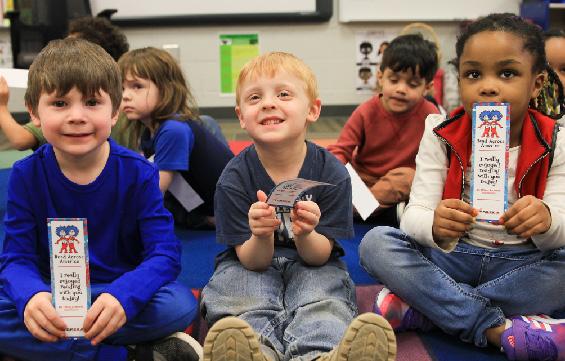
“If you want to increase student academic achievement, give each student a friend.”
--John Hattie
Monday,
Secondary staff report to Bishop Professional Development Center 3601 SW 31st Street
7:30 a.m. - 8:15 a.m.
Monroe A, B, C, Café *(all staff)
Continental Breakfast, Socializing, Review of Day’s Agenda
8:15 a.m. - 11:15 a.m.
Monroe A, B, C *(all staff)
• Welcome from Dr. Anderson & Mrs. Wallace
• Learning Principles, Mission, Vision, District Initiatives Presentation
11:15 a.m. - 12:30 p.m.
Lunch and travel time - Box lunch provided by Topeka Public Schools in the Bishop Café
Secondary staff return to their home schools by 12:45 p.m.
12:45 p.m. - 3:45 p.m.
All Secondary General Education, Special Education Teachers, Counselors and Related Services (SLP, OT, PT, SW, Psych, Nurses) will report to their home school and meet with building administrators.
* all staff includes General Education, Special Education Teachers, Counselors and Related Services staff
Tuesday, July 29
All staff report to Bishop
7:30 a.m. - 7:55 a.m.
Monroe A, B, C, Café *(all staff)
Continental Breakfast sponsored by Emporia State University Online Socializing, Review of Day’s Agenda
8:00 a.m. - 11:15 a.m.
Monroe A, B, C *(all staff)
Classroom Management, Effective Instruction and Student Motiviation - The Key to Raising Student Achievement, Part 1
Mr. Mark McLeod
11:15 a.m. - 12:30 p.m.
Monroe A, B, C, Café *(all staff)
Lunch & Learn
Lunch provided by NEA-T
12:30 p.m. - 2:00 p.m.
Monroe A, B, C *(all staff)
Continuation of morning session - Mr. Mark McLeod
2:15 p.m. - 3:45 p.m.
Debrief from Teaching and Learning Staff
3:45 p.m. - 5:00 p.m.
Secondary Store *(all secondary staff)
* all staff includes General Education, Special Education Teachers, Counselors and Related Services staff
“I never teach my pupils, I only provide the conditions in which they can learn.”
--Albert Einstein
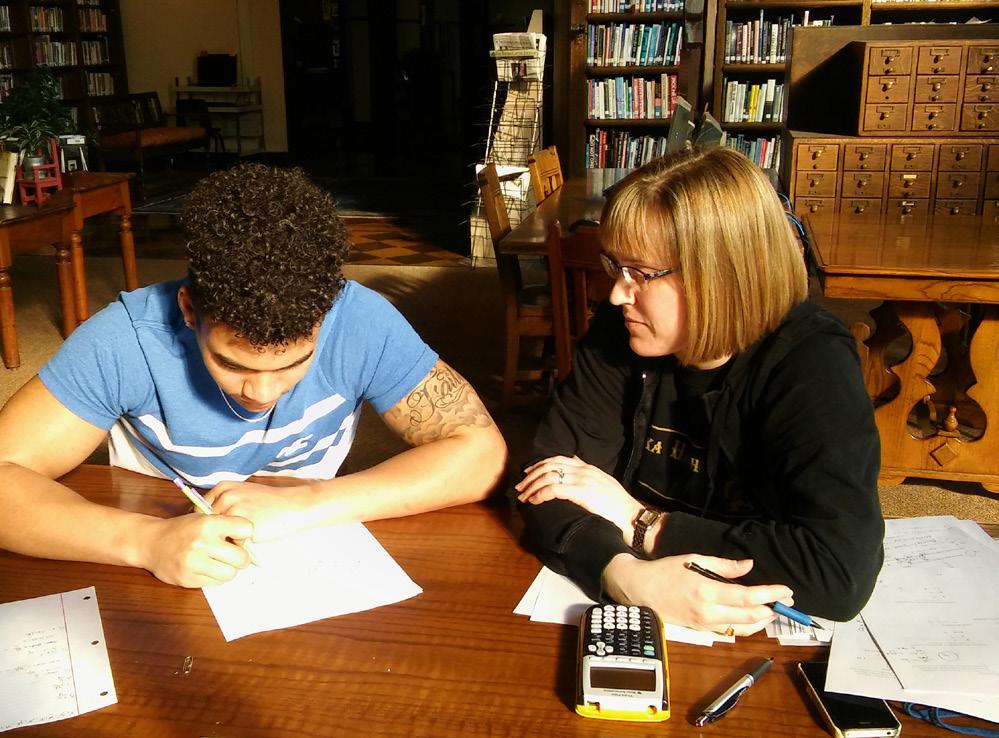
Traumatic experiences impact student learning
Topeka Public Schools is a traumainformed school district. All staff are provided the opportunity to understand trauma and its impact on our students. As staff, we understand how trauma impacts the brain, how to recognize signs of trauma and respond in a way that fosters learning.
Child Trauma Academy trained staff offer professional development to all TPS staff throughout the year. For more information, email our Social Work Coordinator - Susan Mills at smills@ tps501.org.
Wednesday, July 30
“Education is not the filling of a pail, but the lighting of a fire.”
--William Butler Yeats
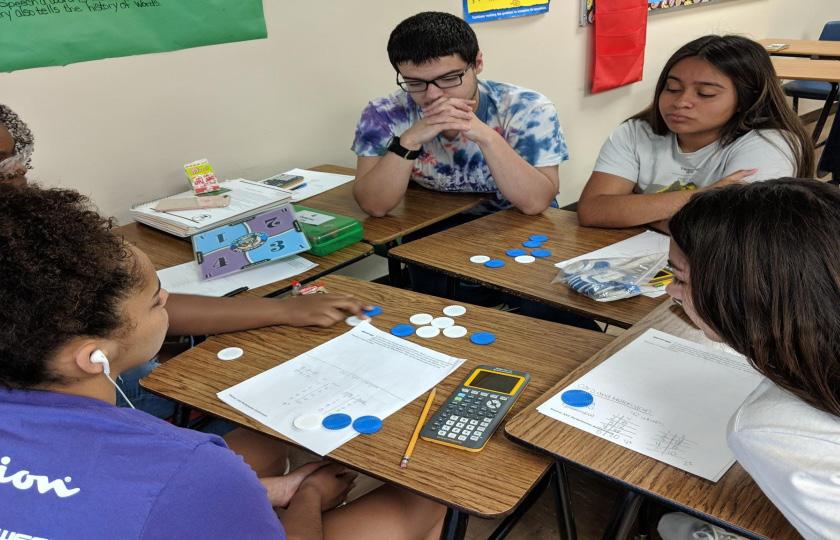
Topeka Public Schools, in partnership with Dr. John Hattie, is implementing high-impact Visible Learning strategies. TPS focuses on Teacher Clarity, Academic Discussion, and Higher-Level Questioning. These three student-centered strategies are written into School Improvement Plans and part of the learning walk process.
• Teacher Clarity - Students are able to articulate what they are learning, why they are learning it, and how they will know when they have learned it.
• Academic Discussion - Students are cognitively challenged in learning through the use of district supported initiatives (e.g., Kagan Cooperative Learning, Building Thinking Classrooms, student to student discourse strategies, etc.).
• Higher-Level Questioning - This includes both teacher and student questioning, looking at the Depth of Knowledge, and Dr. Hattie’s four key questioning strategies:
• designing higher cognitive questions
• developing a sequence of questions
• increasing wait time
• responding to answers - redirecting, probing, reinforcing
All staff report to Bishop
7:30 a.m. - 7:55 a.m.
Monroe A, B, C, Café
Continental Breakfast compliments of Azura Credit Union Socializing, Review of Day’s Agenda
8:00 a.m. - 8:15 a.m.
Monroe A, B, C, Café Welcome, Community Builder
8:15 a.m. - 10:15 a.m.
Monroe A, B, C Learning Trifecta
10:15 a.m. - 10:30 a.m. Break
10:30 a.m. - 11:30 a.m.
Monroe A, B, C STEM Teambuilder
8:15 a.m. - 11:30 p.m.
Related Services (SLP, OT, PT, SW, Psych, Nurses) will meet with their department
11:30 a.m. - 12:30 p.m.
Lunch - Monroe A, B, C, Café Burger Bus, compliments of Horace Mann
12:30 p.m. - 1:45 p.m.
General & Special Education Teachers, Counselors Comprehensive, Integrated, Three-Tiered Model of Prevention (Ci3T) by grade-level band
1:45 p.m - 3:45 p.m.
Related Services (SLP, OT, PT, SW, Psych, Nurses) will meet with their department
1:45 p.m. - 2:00 p.m. Break
2:00 p.m. - 3:45 p.m.
Meet the Teaching and Learning Team (Content Areas)
3:45 p.m. - 6:00 p.m.
NEA-T New Staff Store KNEA Building, 715 SW 10th Ave (second floor)
All staff report to Topeka Zoo & Conservation Center
Kay McFarland Japanese Garden 635 SW Gage Blvd
7:30 a.m. - 7:55 a.m.
Continental Breakfast, Socializing, Review of Day’s Agenda
8:00 a.m. - 9:30 a.m.
Topeka City Bus Tour
8:00 a.m. - 11:15 a.m.
Long-term subs will meet at Bishop, 3601 SW 31st Street
9:45 a.m. - 11:15 a.m.
Community Partners presentations and booths
11:15 a.m. - 12:30 p.m.
Box lunch and travel time
All staff return to their home schools
12:30 p.m. - 3:45 p.m.
All General Education, Special Education Teachers, and long-term subs will report to their home school and meet with instructional coaches.
Related Services will meet with department coordinators
• SLP, SW, and Psych will meet at Quinton Heights
• OT, PT will meet at Avondale West
• Nurses will meet at Highland Park High School
3:45 p.m. - 6:00 p.m.
NEA-T New Staff Store
KNEA Building, 715 SW 10th Ave (second floor)
Topeka Public Schools programs and staff have been recognized for:
• 2025 Presidential Award for Excellence in Mathematics and Science Teaching (PAEMST) finalists Cherryl Delacruz, College Prep Academy, Meshach McKnight, Chase Middle School
• 2023 Woman Superintendent in School Leadership Winner, Dr. Anderson
• 2024 Region 2 Kansas Teacher of the Year nominees Diane Kimsey and Laura Cluke
• 2025 Region 2 Kansas Teacher of the Year Nominees Troy St. Clair and Michael Kates
• 2023 & 2024 Horizon Award winners, Megan Maness (French) and Leslie McCaffrey (Williams Science & Fine Arts Magnet)
• 2024 Best Communities for Music Education
• 2024 High School History Teacher of the Year, Leslie Nelson (Topeka West HS)
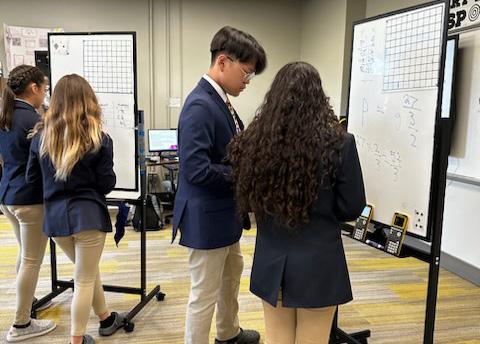
Identify two ways you can address implicit bias in your classroom for all students.
How can your classroom be a welcoming environment for students of diverse backgrounds?
What are some strategies you will employ when discussing controversial topics?
What routines will you implement on the first day of class to ensure there is structure?
Students learn through active engagement and play. What are two ways you will engage all students in learning?
Explain two routines you will use to build relationships with students within the first two weeks of the school year. Please include how you will address overcoming bias.
What are two ways you will work to engage students on the first day of school?
In what ways can you support students in becoming more accountable for their behavior?
How might you design and communicate clear learning intentions and success criteria (e.g., written, posted, verbal, etc.) that are reflective of what you want your students to know and do?
What are some of your key takeaways regarding teacher clarity?
What are some strategies for academic discussion that you might use throughout the first month of school?
In what ways will you use the Higher-Level Questioning continuum to increase rigor in your classroom?
Share some examples of how your students can meet classroom expectations by giving them specific behavior praise?
How will taking an instructive, positive approach to address students not meeting expectations increase the likelihood that students meet the expectations in the future?
In what ways might you build relationships with the Topeka community?
Use this space to write down the community partners you connected with.
Use this space to reflect on the Topeka City Bus Tour and Brown v. Board of Education presentation.
Brainstorm
Leaving the room as a class and individually (e.g., using the restroom, going to the nurse, going to an assembly, lunch, or recess)
Beginning the school day and/or class (e.g., What will students do when they arrive? How will you take attendance, etc.?)
Obtaining help with assignments (e.g., How do students get help? How will students be allowed to help each other?)
Getting up from seat, throwing away trash, sharpening pencil, kleenex, etc.
Taking out/putting away/caring for supplies
Attention signal
What should students do when the teacher is called away? (e.g., phone call, step into the hallway)
What are your expectations for inclass transitions? (e.g., Whole group to small group, direct instruction to cooperative work)
List some of the core activities and your student expectations for those activities. (e.g., picking up resources before class, whole group instruction, small group instruction, solo work, cooperative learning)
Handing in finished work/homework
What to do when students finish early?
Ending the day and/or class
When creating your routines and procedures, consider the following: When will students be allowed to talk? When engaged in an activity or a transition, how do students get help? How can you be engaged in an activity or transition without movement? What does appropriate participation look like/sound like?

Topeka Public Schools is committed to educational fairness and opportunity for all racial and ethnic groups and academic excellence and personal success for all students.
Central to this commitment is educational equity. Educational equity means raising the achievement of all students while (1) eradicating the achievement gaps between the lowest and highest performing students and (2) eliminating the racial predictability or disproportionality of which student groups occupy the highest and lowest achievement categories.
The Topeka Public Schools (TPS) mission is to engage students in the highest quality learning, prepare students for responsible, productive citizenship, and inspire excellence for a lifetime. Our goal is to increase learning for every student. Racial equity is a critical component for the district for a basic and essential reason, to raise the achievement of all students.
We know that this work is complex and often uncomfortable, but TPS is committed to eradicating the achievement gaps between the lowest and highest performing students and eliminating the racial predictability or disproportionality of which student groups occupy the highest and lowest achievement categories.
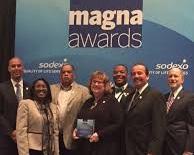
The Topeka Public Schools Equity Institute program has been recognized by the National School Boards Association by receiving first place for the 2018 Magna Award in the 5,000 to 20,000 student population category. This is the fourth Magna Award the district has received.
In 2023, the overall four-year graduation rate for the district has increased to 87.3 percent.
On June 26, 2020, Topeka Public Schools hosted their first ever Equity Series featuring current and former students.
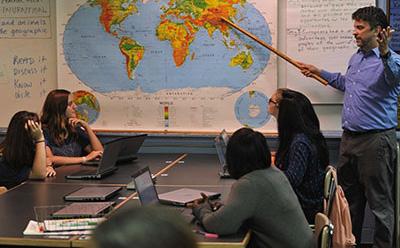
Ci3T is a proactive approach designed to support students’ academic, behavioral, and social-emotional success. This evidence-based framework integrates data-driven decision-making to deliver tailored interventions at three levels: universal (Tier 1) for all students, targeted (Tier 2) for those requiring additional support, and intensive (Tier 3) for students with significant needs. By fostering a positive and inclusive school environment, Ci3T aims to promote optimal student outcomes through collaborative efforts among educators, families, and the community. As new staff, understanding and implementing the Ci3T model will be crucial in contributing to the holistic development and achievement of every student in our district.
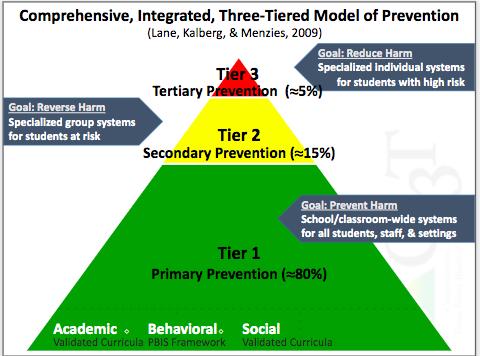

Each building’s implementation manual:
• Describes a Tier I (Primary Prevention) plan for academic, social-emotional and behavioral responsibilities of all stakeholders, including suggested responsibilities for parents.
• Includes an Expectation Matrix for school settings and a Reactive Plan for behaviors.
• Identifies supports available for students needing Tier II (Secondary) and/or Tier III (Tertiary) supports in academic, social-emotional and behavioral areas.
• Is monitored, reviewed and edited annually by a building-level Ci3T leadership team.
Ci3T is not a “program,” but rather the umbrella under which the school operates.
• View a brief video introduction to Ci3T by scanning the QR Code.
• Make sure you receive a copy of your school’s Ci3T implementation manual from your administrator.
• Read the manual so that you will be familiar with your school’s expectations for delivering academic, behavioral and social-emotional instruction.
• If you have any questions, meet with your instructional coach and/or administrator.

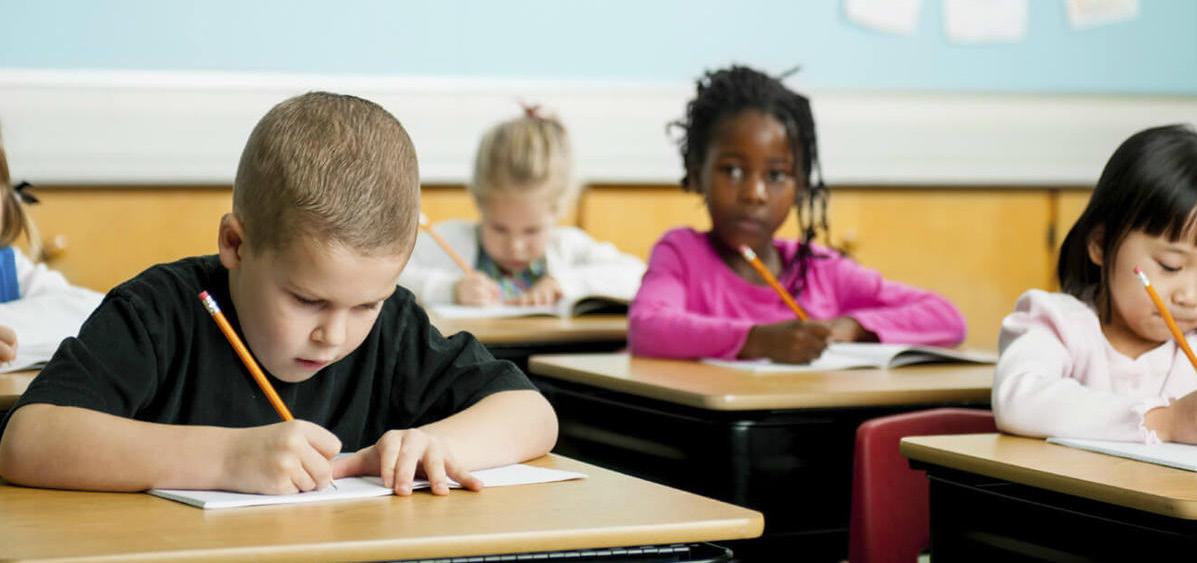
Dr. Rita Pierson was a renowned public speaker and anti-poverty advocate who understood and insisted that teachers build stronger relationships with children. “Every child deserves a champion; an adult who will never give up on them, who understands the power of connection and insists that they become the best they can possibly be.”
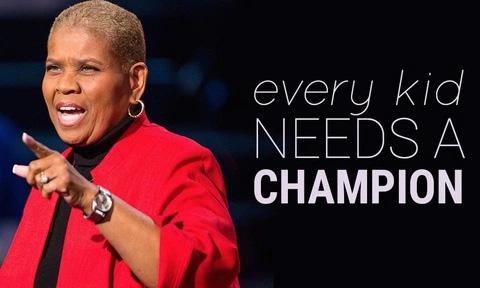







Scan the QR code to watch the TED talk video on YouTube.
1. Establish clear expectations and rules
2. Build positive relationships
3. Engage students actively
4. Monitor and provide feedback
5. Reflect and adjust
6. Create an inclusive and supportive learning environment
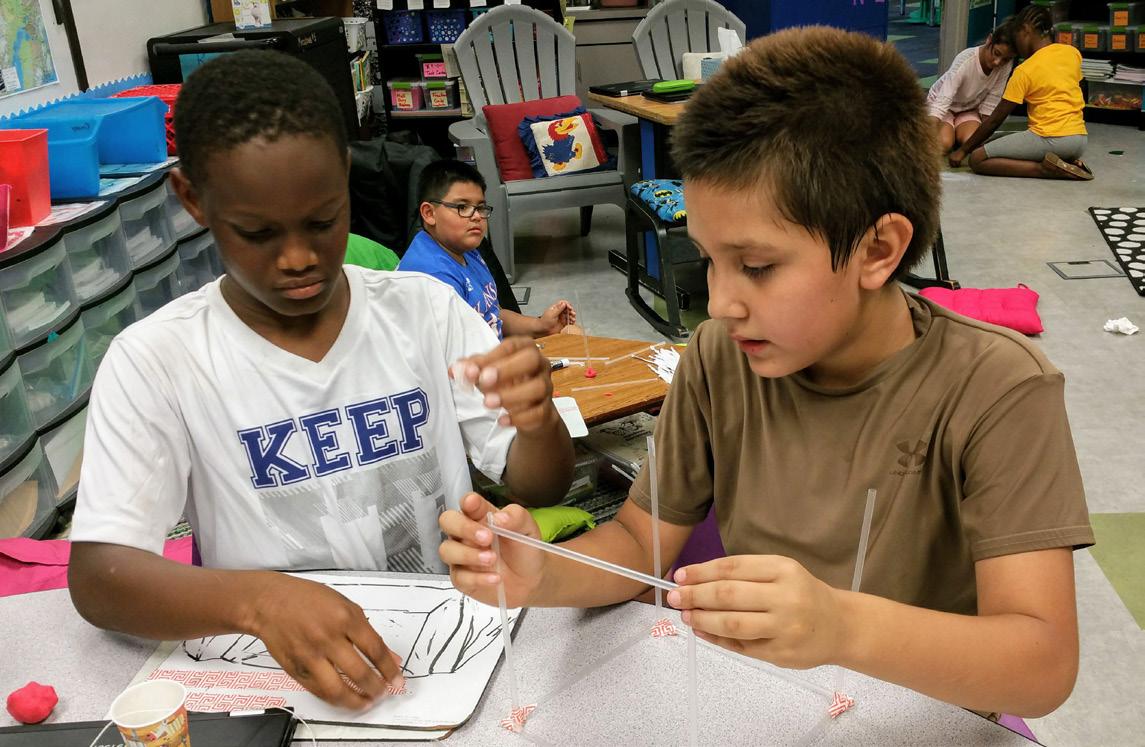
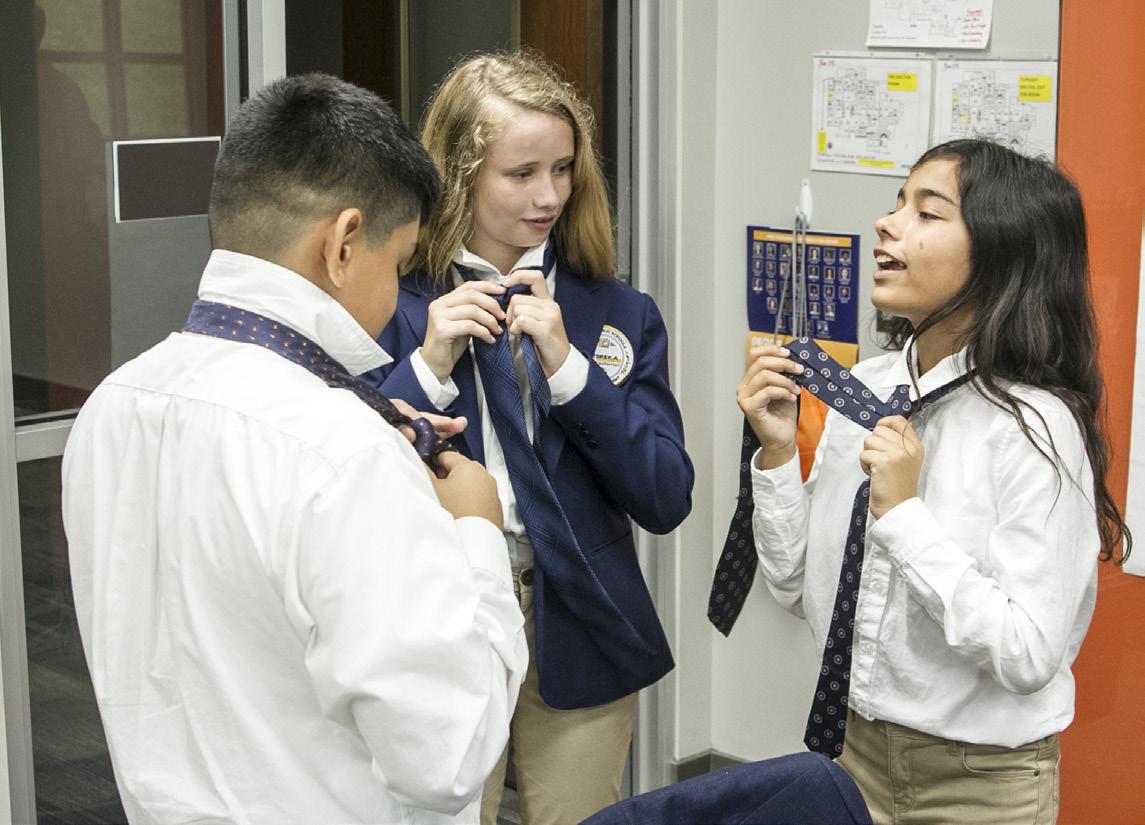
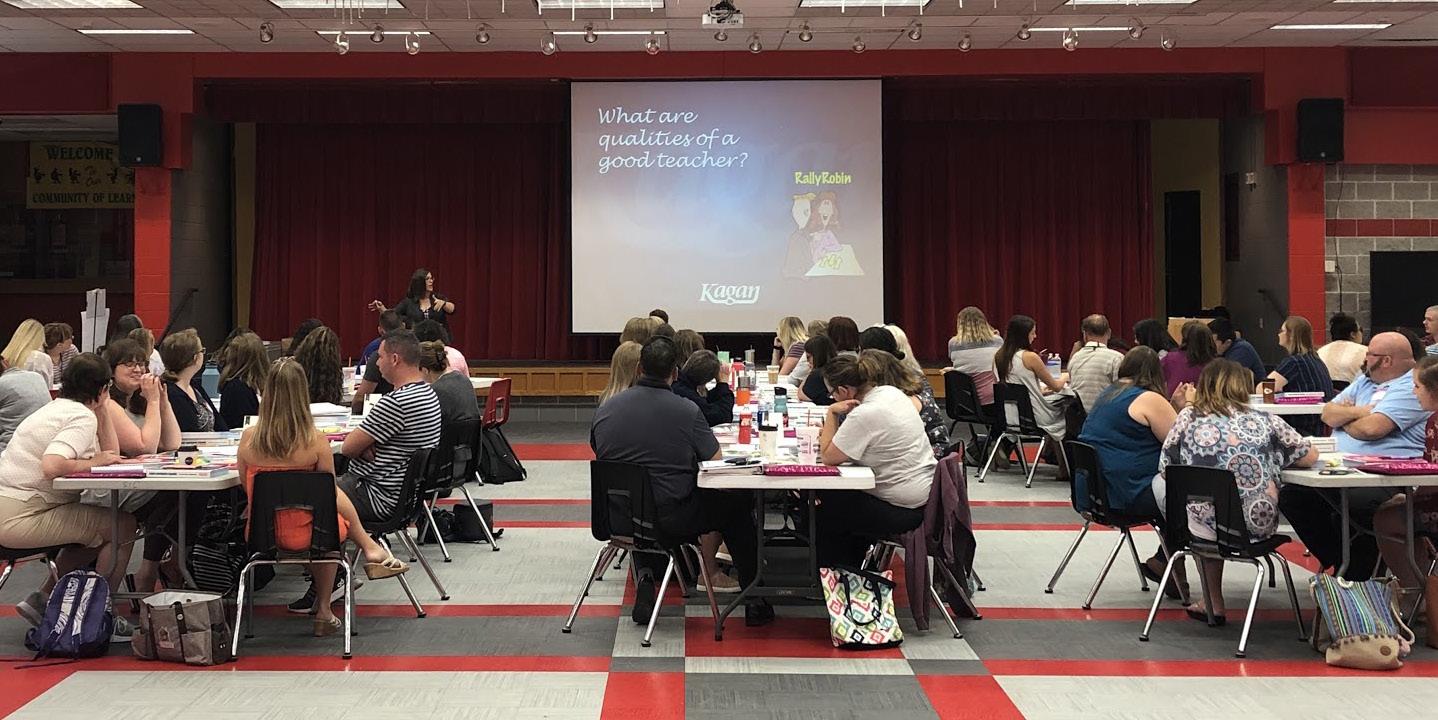
Academic engagement is an essential component of student success. In Topeka Public Schools, teachers regularly engage students in learning activities that challenge them to think critically and creatively, while working closely in a cooperative group. Through engagement activities students are able to work on both interpersonal and academic skills. Staff work to ensure students are not just compliant, but truly engaged in learning activities every day.
There are many ways to define the concept of engagement. When students are working in cooperative teams, and the principles of cooperative learning have not been compromised, we have achieved student engagement. Additionally, students can be engaged during independent experiences. Teachers must ensure engagement isn’t simple compliance, in other words, just completing a task to get it finished and turned in. Engagement can be broken down into three types: behavioral (on task), cognitive (deep learning) and emotional (connection and value). In TPS we work to engage students in all three ways.
In TPS, we seek to include research-based strategies to engage and motivate all learners. Implementing instructional strategies to ensure students engage in academic discussions and use higher-level questioning skills are critical to ensure students are assessment capable learners. Strategies may include: Socratic Seminars, Project Based Learning and Kagan Structures.
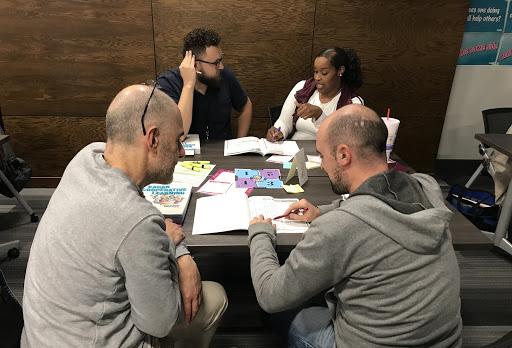
For over a decade, TPS has provided teachers training in Kagan Cooperative Learning structures (www.kaganonline.com). These structures are designed specifically to ensure all students engage with the content being learned and with each other. The principles that define engagement in the Kagan philosophy include: Positive interdependence, individual accountability, equal participation and simultaneous interaction.
As a district, TPS prioritizes high-impact instructional strategies to enhance the learning environment for both teachers and students, ultimately boosting student achievement. Staff engage in professional development focused on key school improvement strategies. Our district emphasizes Teacher Clarity, Academic Discussion, and Higher-Level Questioning to foster a dynamic and effective educational experience. Staff implement lessons using research-based methods and conduct learning walks to continuously assess and improve our instructional practices. Through these efforts, we strive to create a thriving academic environment where every student can succeed.
Teacher Clarity is a driving force in Topeka Public Schools. It is essential that teachers are clear about expectations and provide clear instruction in order to support student learning. Through the work of John Hattie’s Visible Learning research, TPS has explored the essential components of Teacher Clarity, which include:
• Clarity of Organization, such that lesson tasks, assignments and activities include links to the objectives and outcomes of learning.
• Clarity of Explanation, such that information is relevant, accurate and comprehensible to students.
• Clarity of Examples and Guided Practice, such that the lesson includes information that is illustrative and illuminating as students gradually move to independence, making progress with less support from the teacher.
• Clarity of Assessment of Student Learning, such that the teacher is regularly seeking out and acting upon the feedback he or she receives from students, especially through their verbal and written responses.
Throughout any learning opportunity, students should be able to answer the following questions:
• Learning Intentions
“What am I learning today?”
• Relevance
“Why am I learning this?”
• Success Criteria
“How will I know that I have learned it?”
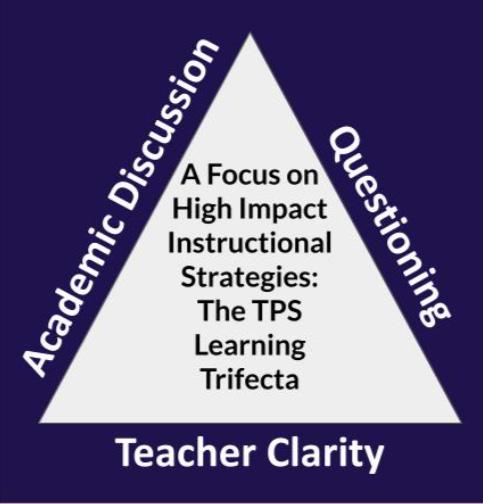
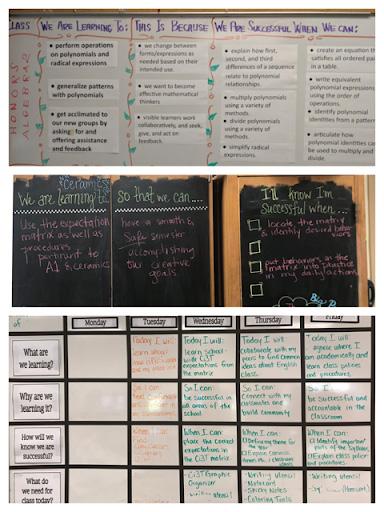
TPS is committed to understanding the pivotal role of academic discussions in the classroom. Academic discussions are not just a method of communication but a powerful tool that enhances student engagement, leading to higher levels of achievement and motivation. By encouraging thoughtful dialogue, we aim to create a learning environment where students feel invested in their education and inspired to explore new ideas.
1. Deepens understanding through active engagement and collaborative thinking.
2. Refines and clarifies ideas, helping students organize and test their thinking.
3. Builds academic langauge fluency through meaningful use in context.
4. Improves retention by moving learning into long-term memory.
5. Creates a connected classroom where students learn with and from each other.
Using the continuum to guide instructional planning and implementation is crucial to delivering engaging learning experiences for students. Discussions must be structured, include opportunities for analysis, and require all students to participate by answering questions and posing questions to their peers.


TPS is dedicated to understanding the critical role of Higher-Level Questioning in fostering a rigorous academic environment. Higher-Level Questioning promotes inquiry and deepens discussions, leading to enhanced student engagement and achievement. Higher-level questions stimulate inquiry and foster meaningful discussions, which are essential for deep learning and critical thinking.
TPS focuses on research-based strategies that incorporate Higher-Level Questioning to drive classroom discussions and promote intellectual rigor. TPS trains educators to ask questions that challenge students to analyze, evaluate, and create, which encourage a culture of inquiry and active learning.
Teachers integrate research-based questioning techniques into lessons to elevate the quality of classroom discussions. Through these efforts, we aim to cultivate an academic atmosphere where rigorous questioning and dynamic discussions lead to enhanced student understanding and achievement.
Using the continuum to guide instructional planning and implementation is crucial to delivering engaging learning experiences for students. Higher-Level Questioning must be scaffolded for student learning experiences. Additionally, students must be afforded the opportunity to pose questions during lessons, allowing them to increase understanding and connections to both content being learned and their peers.


Social, Emotional and Character Development Standards (SECD) provide schools a framework for integrating social-emotional growth (SEG) with character development so that students will learn, practice and model essential personal life habits that contribute to academic, social-emotional and post-secondary success. Social & emotional learning is about learning to be caring and civil, to make healthy decisions, to problem solve effectively, to value excellence, to be respectful and responsible, to be good citizens and to be emphathetic and ethical individuals.
Character Development
• Core Principles
• Responsible Decision-Making
• Problem Solving
Personal Development
• Self-Awareness
• Self-Management
Social Development
• Social Awareness
• Interpersonal Skills
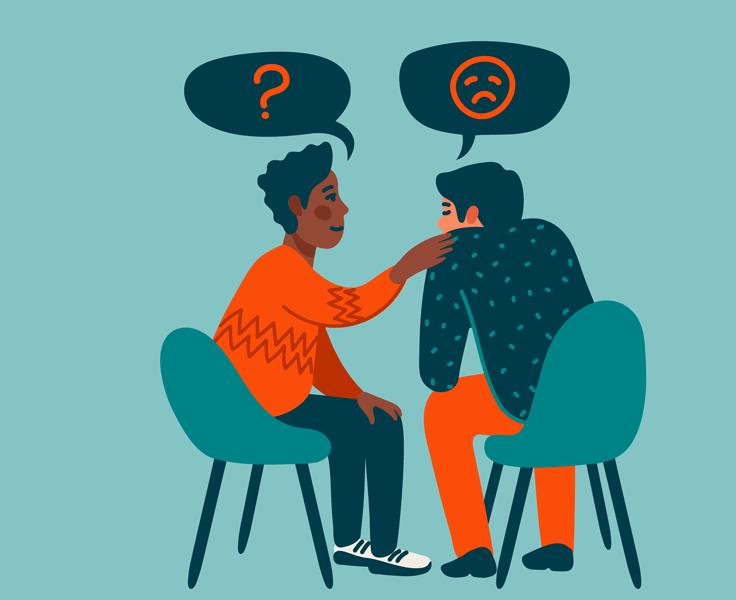
• Building Mental Health Teams
• Advisor Base (Middle School)
• Seminar (High School)
• Elementary Classroom Guidance Lessons
• Character Strong
• Ci3T
• Youth Development Program (YDP) via Family Service and Guidance
• Midland Grief Counseling
• Bully Prevention
• Suicide Prevention Protocol
• Mental Health Intervention Program
• Individual and Group Sessions
• Zones of Regulation
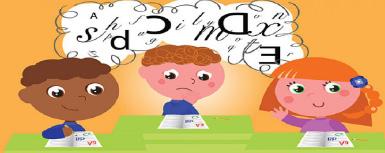
Kansas Definition of Dyslexia
“A specific learning disability that is neurobiological in origin. It is characterized by difficulties with accurate and/or fluent word recognition and by poor spelling and decoding abilities. These difficulties typically result from a deficit in the phonological component of language that is often unexpected in relation to other cognitive abilities and the provision of effective classroom instruction. Secondary consequences may include problems in reading comprehension and reduced reading experience that can impede growth of vocabulary and background knowledge.” -International Dyslexia Association, (2002)
Pre-reader red flags:
Lack of an ability to:
• Retain alphabetic writing instruction
• Retain alphabetic letter knowledge (sounds)
• Progress in phonemic awareness instruction
• Progress in phonics instruction
• Connect letters and their sound correspondence
Phonological Processing Red Flags
• Delayed speech, early articulation errors
• Confusion of similar sounds /b/ /p/ /f/ /v/
• Poor rhyming skills
• Inability to master segmenting
• Difficulty identifying initial, medial, and final sounds in words
Orthographic Processing
• Difficulty copying from the board or book
• Difficulty learning how to make letter forms
• Difficulty remembering high frequency words
• Confusion of similar looking letters and words
• Rules of English spelling difficult to master
Rapid Naming Red Flags
• Difficulty sustaining attention to the process of naming and sounding of letter symbols
• Difficulty retrieving verbal labels
• Difficulty articulating words rapidly

• A vision or hearing issue
• Seeing words/letters backwards
• Attributable to limited intelligence
• Due to low motivation or limited effort
• Due to poor teaching
• Rare
• A condition that can be outgrown
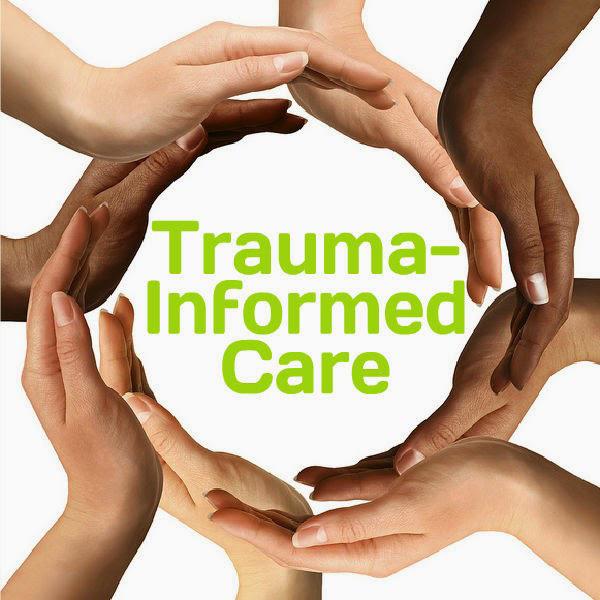

Being trauma-informed means knowing what trauma is, how to spot its effects and knowing how to approach instruction in a trauma-sensitive way. Trauma-informed schools ensure that the policies and culture of each school supports student mental health and safety.
Terrible events are stressful for everyone. Sometimes, the event is severe, the ability to cope is poor, or the event occurs over and over, causing more stress than a person can manage. When this happens, the person has an emotional response called trauma. Possible symptoms of trauma include shock, emotional responses that don’t seem to make sense, negative behaviors, flashbacks, poor social skills, headache, stomachache, and other changes to mood, behavior and health.
• Learn how trauma impacts the brain - don’t be afraid to consult with your mental health team regarding Trauma Informed and Responsive Practices
• Know your students and their families - their needs, strengths, interests, family composition, etc.
• Caringly check in often to ensure the health and wellbeing of families and honor their resilience
• Learn strategies to manage classroom behaviors
• Find ways to stay calm during challenging momentsdevelop plans for teacher regulation and student regulation
• Know your school’s Ci3T plan and discipline policies
• Advocate for change when you see something that could be done better
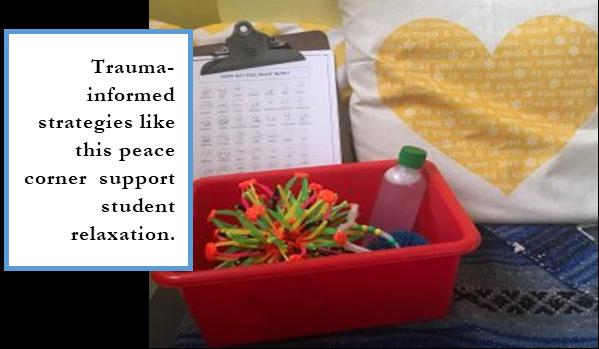
Emotional responses can be triggered by seemingly innocent things in the classroom. Your mental health team can help figure out the trigger and suggest strategies to use. Triggers might include:
• An object
• A face, outfit, or mannerism
• Perceived anger or harm to someone
• Loud noises (slamming door, something breaking, arguing, raised voices)
• Sounds of pain/fear
• Being touched or standing too close
These essential tips will ensure you’re providing solid prevention on the first day of school:
• Create and practice rules and routines
• Create safe space/structure
• Reinforce the positive
• Integrate social-emotional learning
• Model respect
• Incorporate self-control practices into daily routines (breathing, mindfulness)
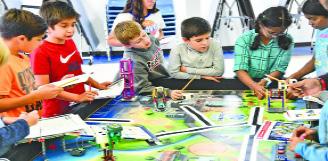
Computer science is more than just a set of digital skills; it is a mindset founded on problem solving, critical and creative thinking and metacognition. Computer science teaches students how to think, learn and grow. While it can be applied to all content areas, it especially supports applied practice in both science and mathematics. Computer science is made up of five concepts: computing systems, networks and the internet, data and analysis, algorithms and programming (coding), and impacts of computing. Cybersecurity is an important part of computer science as technology impacts the lives of students and teachers, both inside and outside of the academic day. Topeka Public Schools has computer science curriculum for students in preschool through high school.
TPS has a computer science pathway that originates in our elementary grades. In middle school students are offered three courses to prepare them for entering the CTE pathway in high school. One eighth grade course is available for high school credit. In high school students can take Comptuer Science Principles for college credit.
Four elementary schools, six middle schools, five high schools, along with TCALC, all engage in Project Lead the Way to bolster the district’s computer science curriculum. At the elementary level, the emphasis is on computer science and STEM, while middle school offerings center on Computer Science Innovators and Makers, Design and Modeling, and App Creation. High school students delve into Computer Science Essentials, Cybersecurity, and Computer Science Principles. TCALC provides courses in Engineering and Biomedical Science.
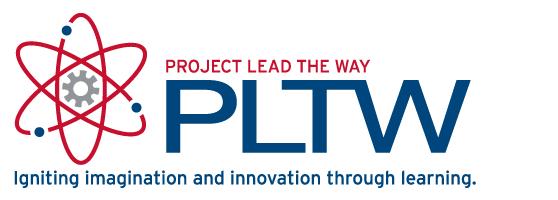
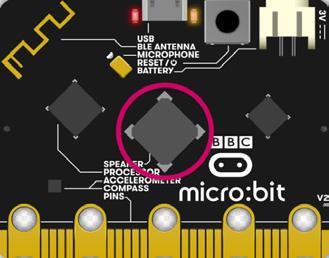

TPS offers advanced computer science camps during the summer, providing students with hands-on experiences that go beyond the regular school year curriculum. These camps explore exciting topics such as FPV drones, presentation drones, engineering structures powered by Micro:bits, and selfdriving cars. Through interactive projects and real-world applications, students deepen their understanding of technology, engineering, and coding in a dynamic and engaging environment.
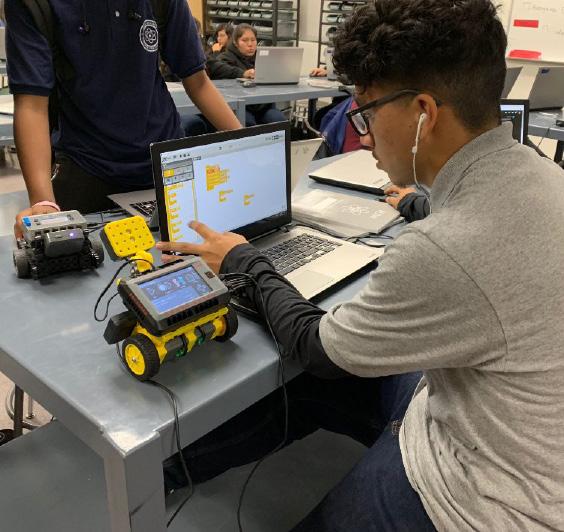


When technology is integrated into classroom learning, students have more opportunities to learn outside the classroom walls. They can take virtual field trips, complete simulations on projects that require critical thinking and problem solving, work collaboratively with other students - even if they are not in the same room, create content to solve real world problems and more. Teachers also benefit because it is easier to scaffold instruction and differentiate for all levels of learners. Students can focus on the parts of instruction they haven’t mastered to increase their mastery of standards. Correctly integrating technology into teaching and learning requires a paradigm shift in the teacher / student dynamic. Training on expected technologies can be found on the technology integration website found in the tps501.org bookmarks.
At Topeka Public Schools, we believe in the transformative power of technology in the classroom. When thoughtfully integrated, technology offers students unparalleled learning experiences, from immersive virtual field trips to collaborative problem-solving, regardless of location. It also empowers them to create solutions and truly own their learning journey. Teachers benefit immensely too! Technology simplifies scaffolding instruction and personalizing lessons to meet diverse student needs, allowing students to hone in on areas for growth and achieve greater mastery of academic standards. Embracing this dynamic shift in the classroom requires new approaches, and the Instructional Technology Handbook is here to support you every step of the way. This essential resource for all TPS staff provides clear, practical information to help you leverage classroom technology effectively and confidently.
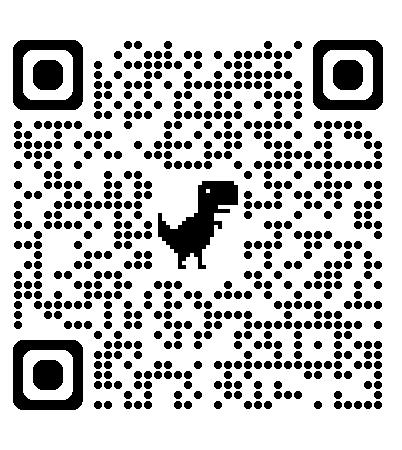
The district purchases and supports the following digital content for classrooms.
Actively Learn 9-12
Art of Ed PK-12
Beanstack PK-12
Benchmark Adalante ELL PK-5
Benchmark Advance PK-5
Character Strong PK-12
Clever PK-12
Desmos 6-12
Destiny Library Manager
DE Coding PK-5
EdPuzzle 6-12
Edgenuity 6-12
FigJam K-12
Google Classroom 3-12
Google Sketchup 7-12 (Coding)
Google Workspace 3-12
HMH Collections 6-8
HMH Dimensions 6-8
IXL Math & ELA K-12
Kami
Mastery Connect PK-12
Mystery Science K-5
Neptune Navigate K-12
NoRedInk 6-12
Seesaw PK-5
Studies Weekly K-5
TinkerCAD 6-12 (Coding)
World Book Online 3-12
Xello 6-12
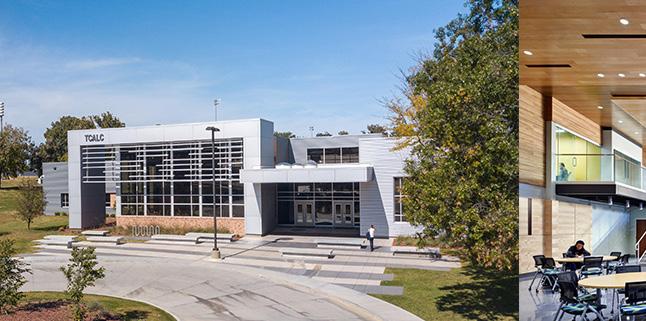
The Topeka Center for Advanced Learning and Careers (TCALC) encourages students to solve realworld problems with real tools that are used by real professionals. Students are mentored by real employers which can lead to real contributions in the professional area. TCALC is an innovative high school program created through business partnerships. This program provides students with the opportunities to deeply explore professions of high interest through profession-based, inquirybased, and project-based curriculum as a sophomore, junior or senior. Students are provided authentic exposure and skill acquisition in high-demand, high-skill 21st century professions.
TCALC offers pathways in the following areas:
• Animal Science
• Baking & Pastry Arts Management
• Building & Construction Trades Technology
• Engineering and Applied Math
• Law & Public Safety
• Medical Professions
• Sports Medicine
• Teaching as a Profession
• Web & Digital Communications
1. Attained sophomore, junior, or senior status and on track for graduation.
2. Desire to work in a profession-based, real world environment with other TPS high school students.
3. Willing to comply with business ethics and dress codes as determined by the career pathway.
4. Willing to spend 2.5 hours a day away from their home school (morning or afternoon).
1. The district provides busing to and from the high schools to TCALC. This must be arranged in advance. Additionally, students will need to consider the travel time necessary for catching the bus at their home school. Travel time cannot be determined until mid-August.
2. Topeka Metro bus passes are provided free of charge to all TPS high school students. The “West 6th Route” is the route that has two bus stops in very close proximity to TCALC.
3. Students may drive their personal vehicles to and from TCALC.
4. If a pathway requires off-site Professional Learning Experiences (PLEs), the student is responsible for providing their own transportation.

The Topeka Public Schools College Prep Academy, which offers accelerated courses in Math and English Language Arts, is housed at TCALC. Scholars in grades 7-11 are bused from their home school to TCALC for courses for a portion of the school day. Through accelerated coursework and real-world learning, students strengthen their academic skills in preparation for collegiate success. College Prep students develop critical professional skills, such as time management and teamwork by visiting colleges, interning at businesses, and volunteering in the community. College Prep scholars graduate prepared to succeed in the college and career options of their choice.
Topeka Public Schools hosts a College & Career Fair for students across Shawnee County each October. More than 100 college/university and career professionals are available to answer students’ questions about college requirements and career paths. High school students and families are encouraged to attend. In addition to hosting a college fair, Topeka Public Schools works alongside community partners, including Gear Up and TRIO, to ensure all students participate in multiple college visits.
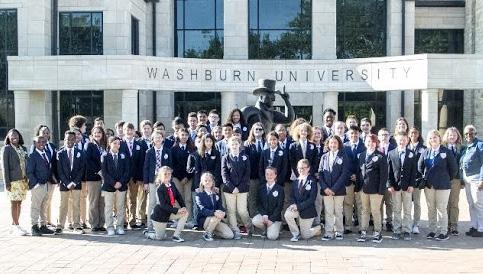
Topeka Public Schools has supported the implementation of AVID in five of our schoolssome for more than a decade. The AVID program provides staff with training in the use of effective instructional strategies, along with ways to increase awareness of, and promote college and careers to students at each of the AVID sites. Students enrolled in our AVID schools are exposed to instructional strategies that help them become better readers, writers, and deeper thinkers. AVID students apply and interview to be part of the AVID Elective class. The AVID Elective is taught by specially trained teachers who provide students with additional opportunities to learn organization and study techniques, and is a place where they truly develop into an AVID “Family”.
TPS AVID Sites
• Chase Middle School
• Eisenhower Middle School
• Robinson Middle School
• Highland Park High School
• Topeka High School
A Focus on WICOR
• Writing
• Inquiry
• Collaboration
• Organization
• Reading
Learning is defined as the natural, self-regulated process of constructing personal meaning from information and experience, filtered through each individual’s unique perceptions, thoughts and feelings. This definition of learning should guide all TPS educators as they plan for and provide instruction to students.
The goal of learning is to understand, apply and transfer knowledge in a variety of contexts.
Learning principles are laws of learning. They provide a research-based and conceptual foundation for how people learn. Learning principles add insight into what makes people learn most effectively. These learning principles should consistently guide all TPS staff in their instructional and other decisions. Evidence of these principles should be apparent in classroom instruction.
Learning is an active process in which learners use sensory input to construct meaning.
Learners link new information with prior knowledge and experiences in meaningful ways.
Learning requires the use of various forms of language (e.g., words, symbols, numbers and images) to capture and develop thinking.
Learning is influenced by many contextual factors, including differences in background knowledge, thinking patterns and cultural, linguistic and social backgrounds.
Learning is influenced by emotional state, social interactions, interpersonal relations and communication with others.
Learners’ motivation, both extrinsic and intrinsic, is a key component to ensure engagement and learning.
Learners’ persistent effort, developmentally appropriate challenges and instructional support result in rigorous learning.
Learners need multiple opportunities over time to practice in supportive, respectful environments.
Learners need regular, specific and timely feedback with opportunities to use the feedback to maximize learning experiences.
Learners reflect, monitor and adjust their thinking and reasoning to achieve learning goals (meta-cognition).
Our five pillars support our instructional vision and serve as a guide for every student to be college and career ready when they complete high school. For each pillar, we have articulated professional outcomes that guide what we will accomplish to ensure students and staff are engaged, prepared, and inspired!
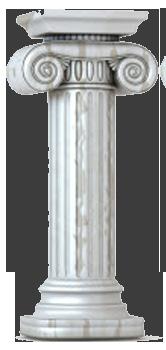


Implement career pathways and prepare students for career and college placement opportunities.
Outcomes
• Build an Innovative Project Based Career Academy (TCALC).
• Offer two years of college courses in high school.
• Implement career placement and internship programs.
Recruit, attract, develop and retain highly effective staff to carry out the district’s mission.
Outcomes
• Implement innovative recruitment techniques (virtual hiring fairs).
• Implement a teacher academy training institute.
• Integrate teaching and learning and professional development programs in human resources.
• Implement a tuition-based preschool service for teachers’ children.
Ensure efficient operations and accountability for responsible use of district resources. Outcomes
• Facilities plan: Construct a staff development center, an early childhood center and a career academy as services for students and families across the community.
• Balanced budget: Maintain a balanced budget and secure corporate sponsors and grants.

Create a safe and caring learning environment that includes a positive, inclusive school culture and positive collaboration and communication throughout the school and community.
Outcomes
• Student well-being: Implement school-based clinics for dental and health services for students.
• Reduce poverty in Topeka by expanding supports for job placement, mental health and homelessness.
• Implement a parent empowerment center to increase parent engagement.
• Expand equity training for students, parents and staff (includes tiered interventions, trauma training and diversity and inclusion training)
• Expand student services support systems and implement an alternative school that serves general education students.

All students will demonstrate academic growth and will have equitable access to academic opportunities. Outcomes
• State-level assessments: Meet or exceed state benchmark standards.
• Subgroup achievement: Implement systems for data utilization, interventions and data driven instruction.
• ACT composite scores: Implement ACT tutoring and testing during the school day to expand participation.
• Kindergarten Readiness: We continue to expand opportunities for early childhood.
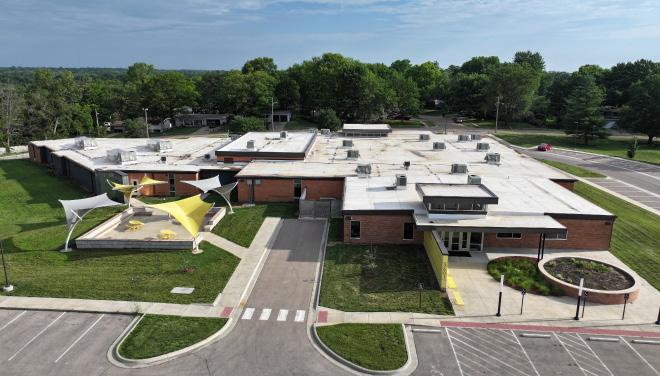
Bishop Professional Development Center 3601 SW 31st Street
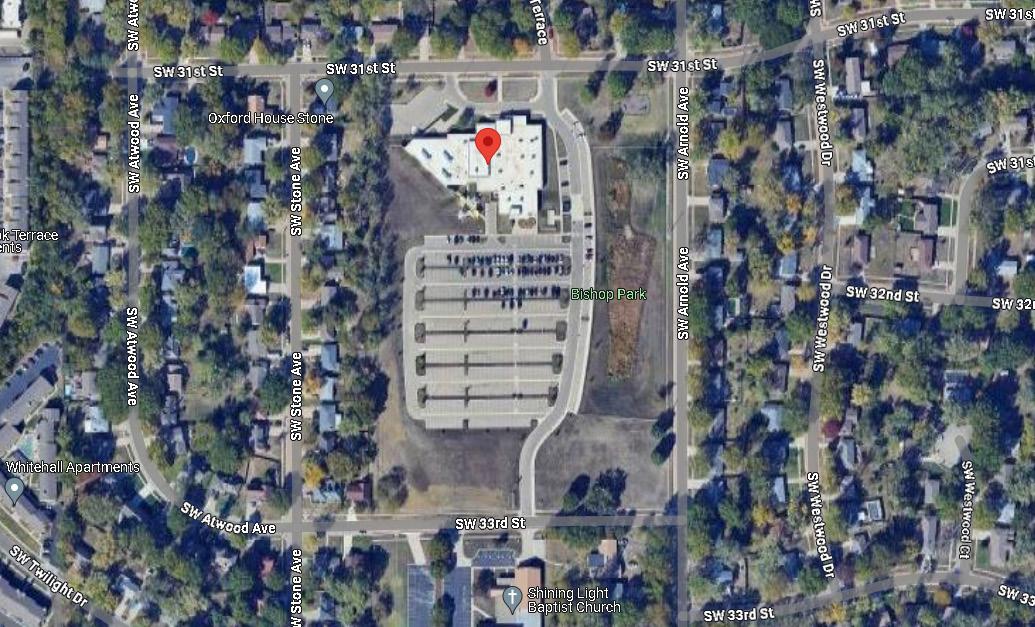
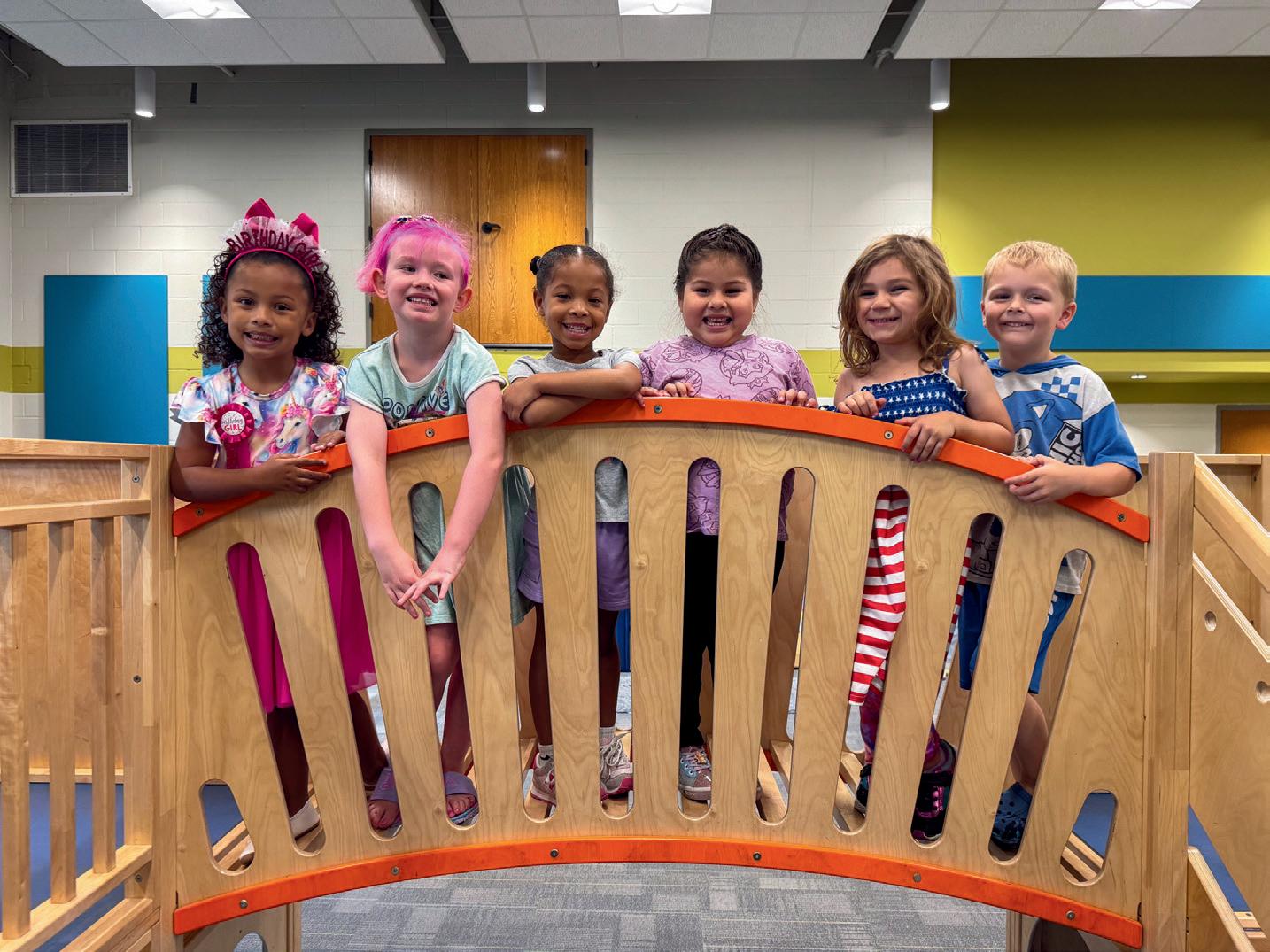
Strengthened by diversity and a welcoming and inclusive environment, our district cultivates partnerships with staff, families, business and industry and the greater community to develop student’s educational physical and social-emotional well being.
Ratio of adults to children is 1:7, 14 students in each classroom
Learning aligned with child development milestones and the Topeka Public Schools preschool curriculum
Emphasis on prerequisite skills needed to successfully transition child to a preschool classroom at three years of age
Follows the same master calendar as Topeka Public Schools
Licensed KDHE daycare

The Little Stars program at Shaner Early Learning
The Little Stars program at Shaner Early Learning Academy provides an educational opportunity for Academy provides an educational opportunity for two-year-olds to attend a structured environment in two-year-olds to attend a structured environment in preparation for preschool at three-years-old. preparation for preschool at three-years-old.
The two-year- The two-year- old program is a full-day, tuition-based old program is a full-day, tuition-based daycare that focuses on foundational learning skills, daycare that focuses on foundational learning skills, gross motor and fine motor play, potty training, and gross motor and fine motor play, potty training, and social-emotional skills. We believe children engage in social-emotional skills. We believe children engage in learning through their interests and exploration and learning through their interests and exploration and construct knowledge from their interactions with the construct knowledge from their interactions with the environment and opportunities around them. environment and opportunities around them.
• Tuition-based daycare
• Indoor playground facility for inclement weather days
• Parents as Teachers Blue Ribbon Model Affiliate
• Breakfast, lunch and snacks are provided to all students
• Daycare spots available for anyone in Shawnee County
The Little Stars Daycare at Shaner Early Learning Academy includes before and after school care. Drop off your child to his or her classroom as early as 7:00 a.m. and pick up your child from his or her classroom as late as 5:30 p.m. each day. Daily planned instruction will begin at 8:30 a.m. and will end at 3:30 p.m.
We also provide the following opportunities in the Shaner Early Learning Academy Little Stars program: Shaner Early Learning Academy Little Stars program:
We also provide the following opportunities in the
Shaner Early Learning Academy is part of the USD 501 Topeka Public Schools district. With approximately 13,000 students districtwide and 2500 staff. We are highly equipped to prepare students for college and career.
Teacher-directed activities
Teacher-directed activities
Circle time
Circle time
Literacy and math
Literacy and math
Dramatic play
Dramatic play
Music
Music
Discovery and science
Discovery and science
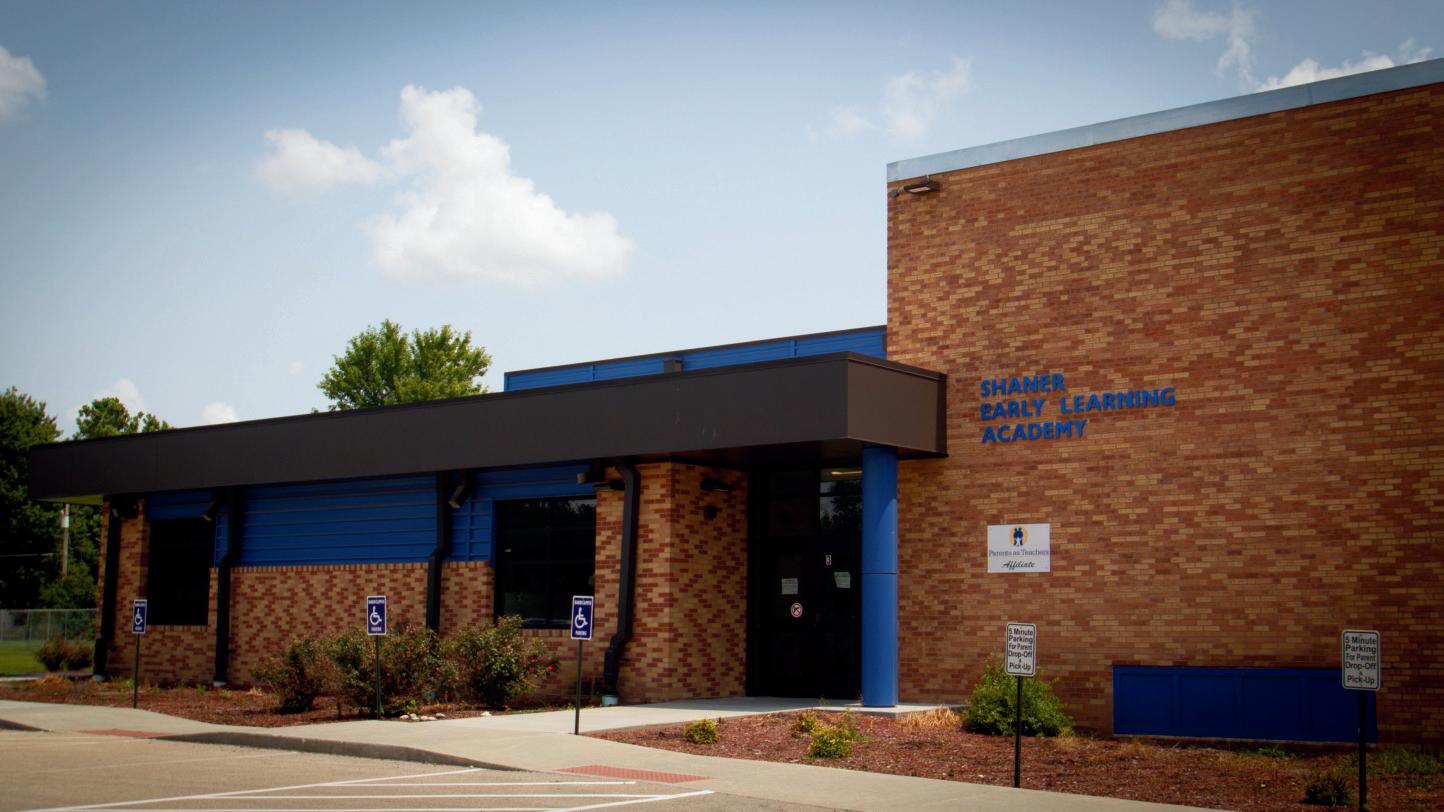
Art Art
Sensory Play
Sensory Play
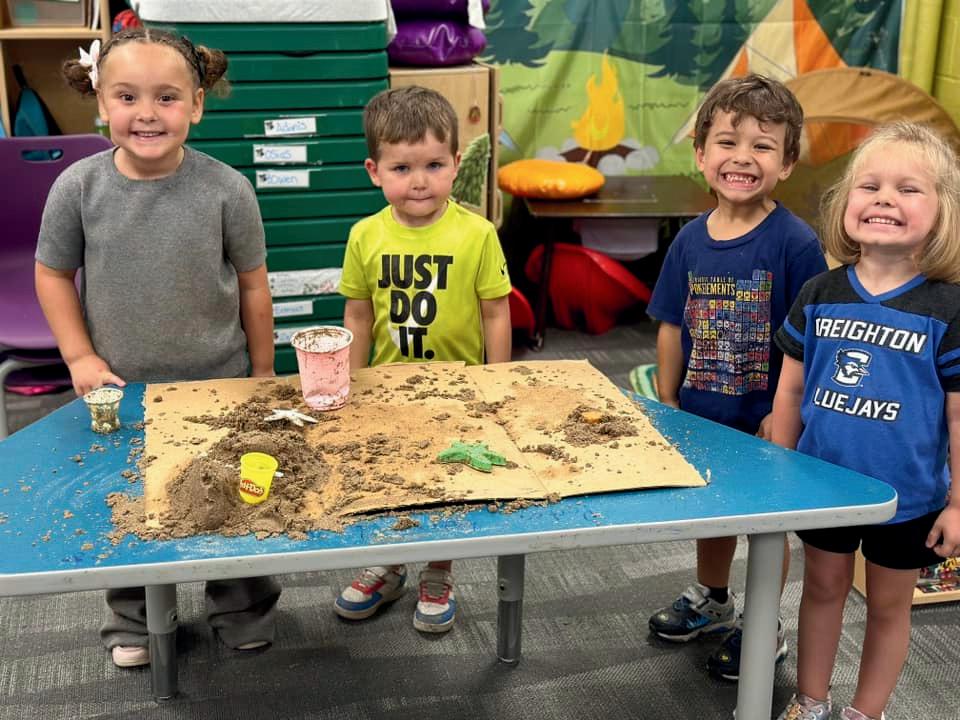
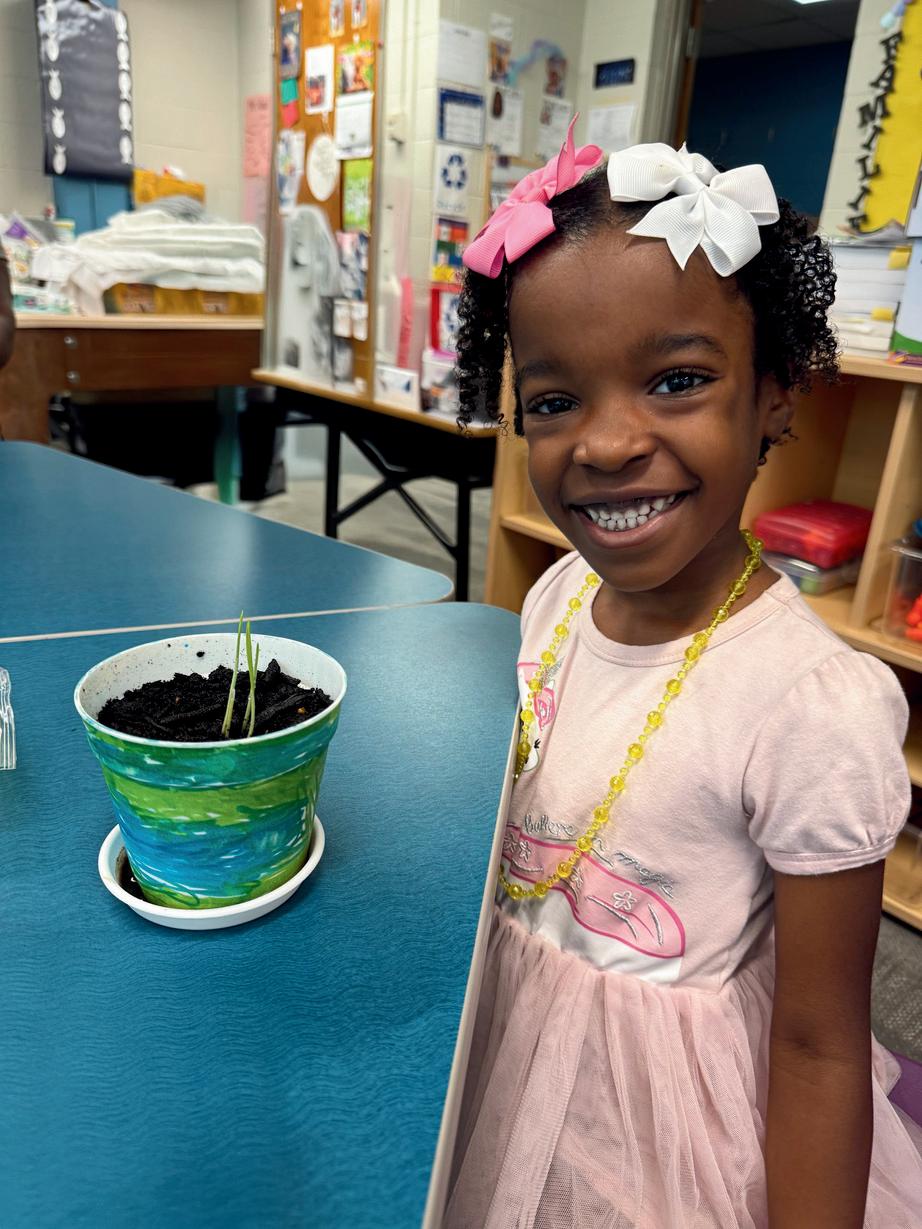
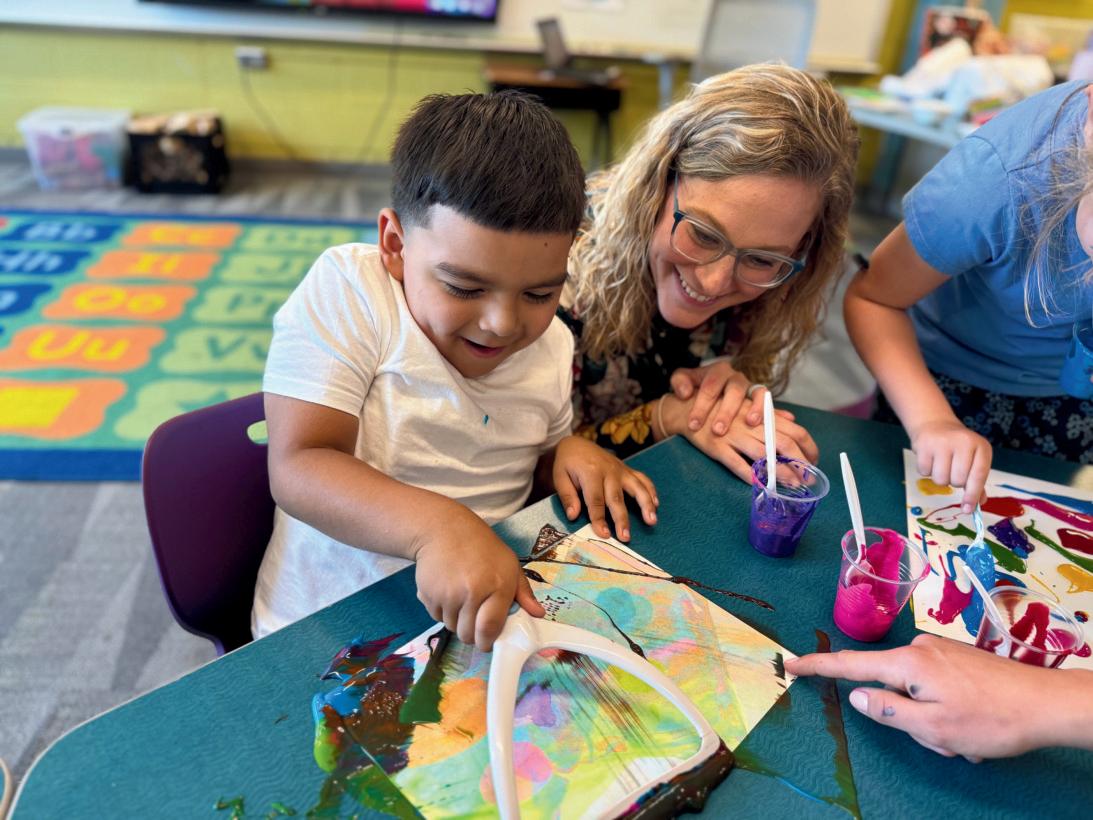
Dr. Randall Schumacher, President
Ms. Lisa Schmitt, Vice President
Dr. Ashley Beason
Ms. Sue Bolley
Dr. C. Richard Bonebrake
Mr. Lalo Muñoz
Mr. Keith Tatum
Dr. Tiffany Anderson, Superintendent


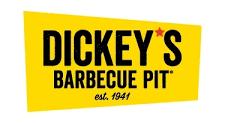
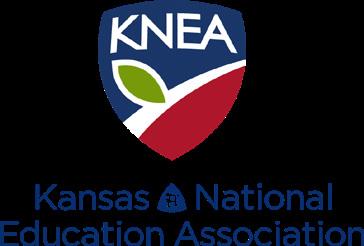

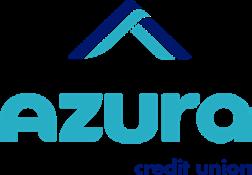
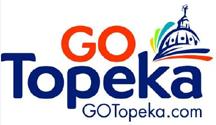
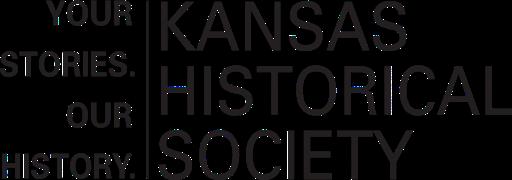
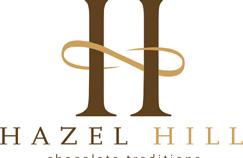
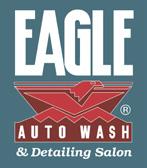
Monday, August 5 - Building PD (AM) / Teacher planning and prep (PM)
Tuesday, August 6 - School-based PD (AM) / District Convocation at Stormont Vail Events Center at 1pm
Wednesday, August 7 - District-based PD
Thursday - Friday, August 8 & 9 - Seven hours of school-based PD and seven hours of teacher planning and prep (building determination)
Monday, August 12 - First day of school for K, 6th and 9th grades
Tuesday, August 13 - First day of school (all students K-12)
Wednesday, August 20 - First day of school for PK
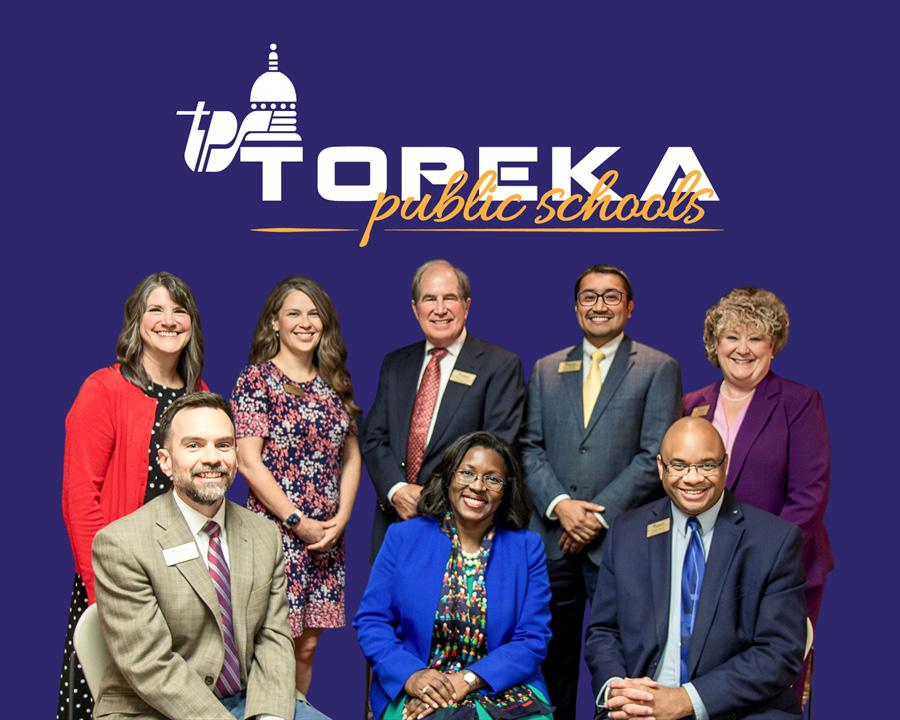

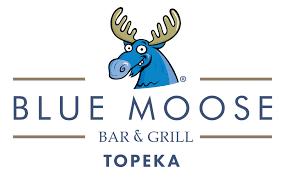
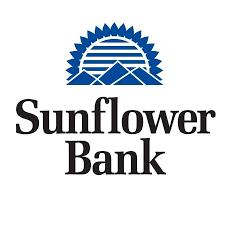

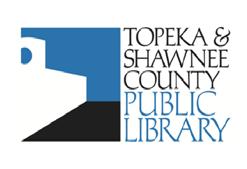
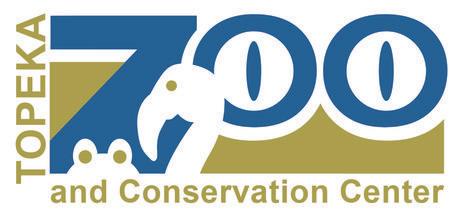
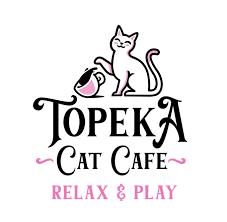
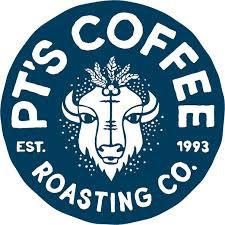

4-H Youth Development Advisors Excel Discovery Center Forge
Horace Mann Kansas Museum of History Topeka Community Foundation
TPS Campus Care Clinic
TPS Foundation
Topeka Zoo
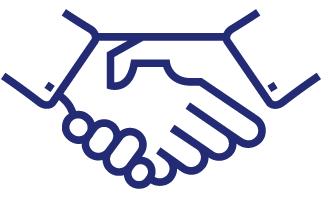
Topeka & Shawnee
County Public Library
United Way
Visit Topeka / Go Topeka Washburn University
Thanks to Topeka Blueprint for printing our book.

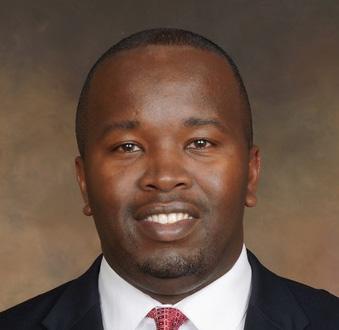
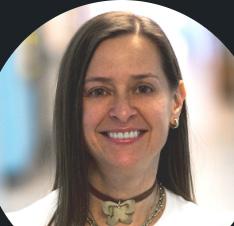
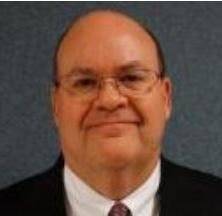
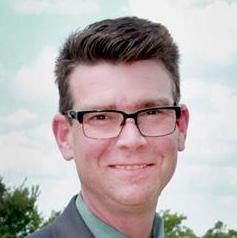
Dr. Bill Macdonald School Improvement Specialist bmacdonald@tps501.org
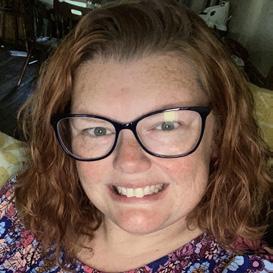
Billie Wager Early Childhood Consulting Teacher bwager@tps501.org
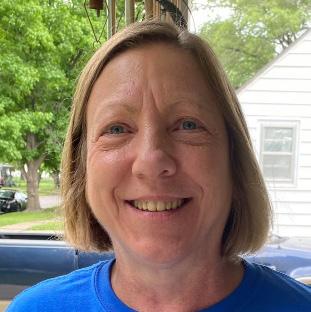
Gail Ramirez Technology Curriculum Specialist gramirez@tps501.org
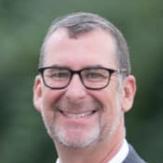
Chris Reynolds Coordinator of Fine Arts creynolds@tps501.org
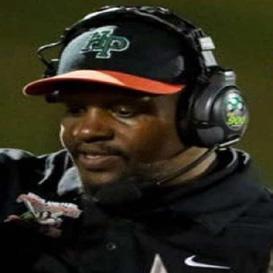
Jermaine Monroe High School PE Consulting Teacher jmonroe@tps501.org
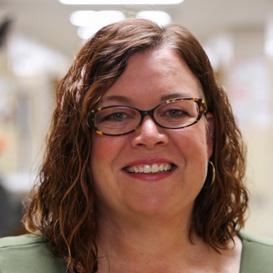
Elisabeth Mikesic Speech & Language Coordinator emikesic@tps501.org
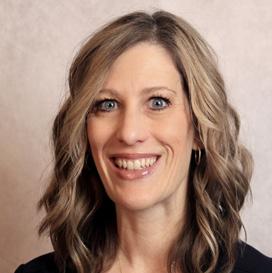
Angela Dick School Improvement Specialist adick@tps501.org
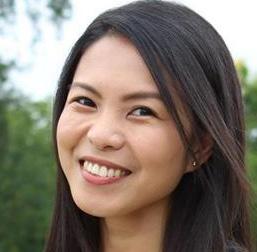
Cherryl Delacruz 6-12 Math Consulting Teacher cdelacruz@tps501.org
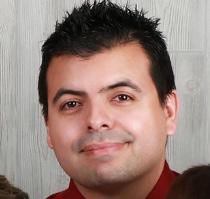
Jess Blouvan Robotics/Automation Specialist jblouvan@tps501.org
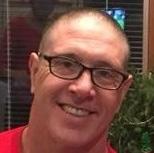
Dr. Roger Laubengayer Secondary EL Coach Consulting Teacher rlaubengayer@tps501.org
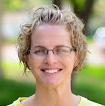
Courtney Halverson Middle School PE Consulting Teacher chalverson@tps501.org
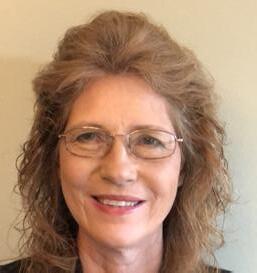
Susan Mills Social Work Coordinator smills@tps501.org
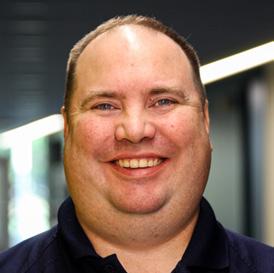
Travis True School Improvement Specialist ttrue@tps501.org
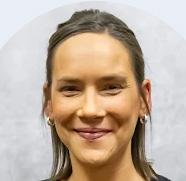
Melinda Ritter PK-5 Math Conulting Teacher mritter@tps501.org
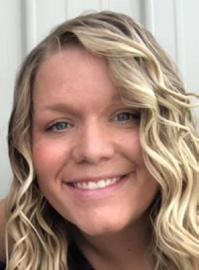
Lindsey Noonan PK-5 Science Consulting Teacher lnoonan@tps501.org

Jennifer Heineken Elementary EL Coach Consulting Teacher @tps501.org
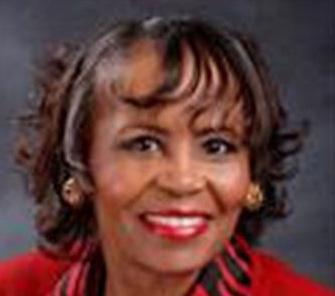
Betty Young Professional Learning Coordinator Induction & Mentoring byoung@tps501.org
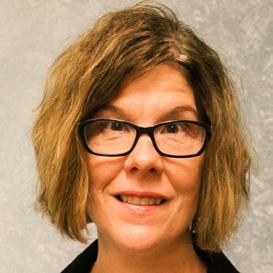
Dr. Robin Dixon PK-5 ELA & Social Studies Consulting Teacher rdixon@tps501.org

Stacy Mitchell 6-12 Science Consulting Teacher smitchell@tps501.org
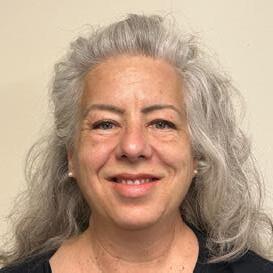
Dr. Regina Peszat World Language Consulting Teacher rpeszat@tps501.org
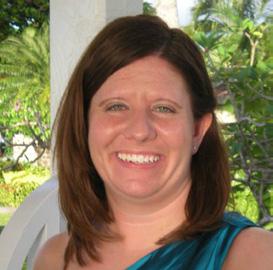
Troy St. Clair Elementary PE Consulting Teacher tstclair@tps501.org
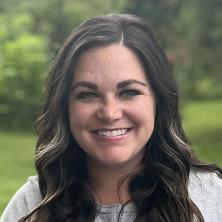
Kristen Harshaw Elementary Special Education Consulting Teacher kharshaw@tps501.org
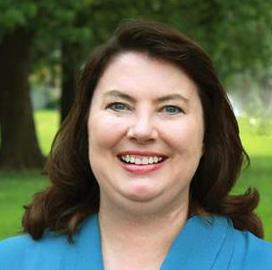
Stacey Kramer Grants, Ci3T, Mandt skramer@tps501.org
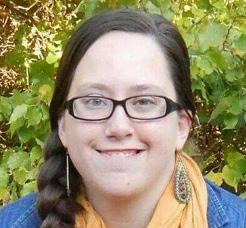
Amber Enneking 6-12 ELA Consulting Teacher aenneking@tps501.org
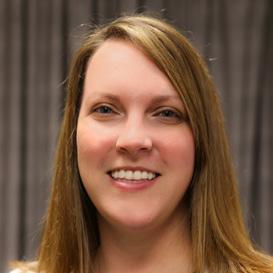
Leslie Nelson 6-12 Social Studies Consulting Teacher lnelson@tps501.org
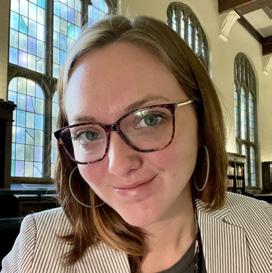
Tiffanie St. Clair Coordinator of Media Services tstclair1@tps501.org

Dr. Kara Schuetz School Psychologist Coordinator kshuetz@tps501.org

Jennifer Johnson Middle School Special Education Consulting Teacher jjohnson1@tps501.org
Yale Taylor Native American Educataion Consulting Teacher ytaylor@tps501.org

Richard Bolejack High School Special Education Consulting Teacher rbolejack@tps501.org